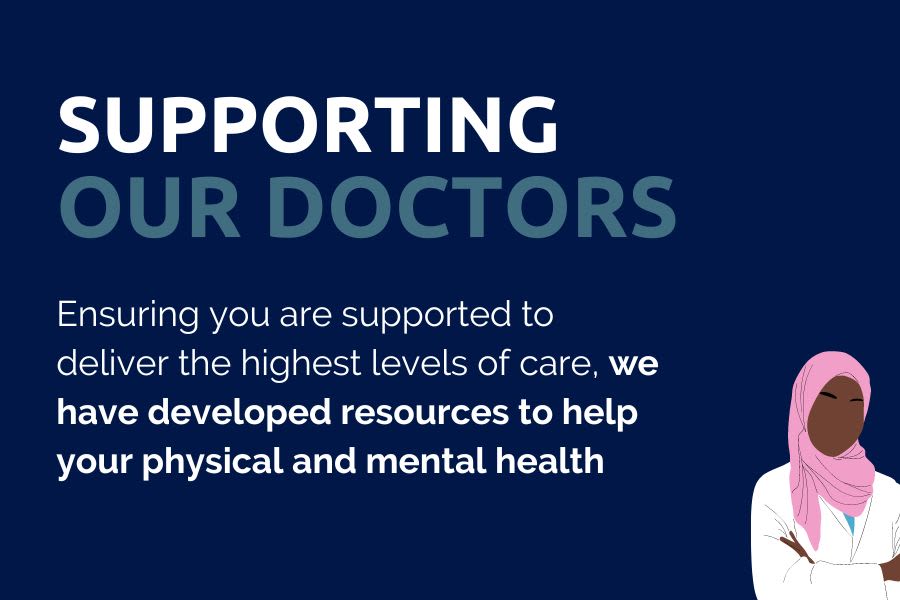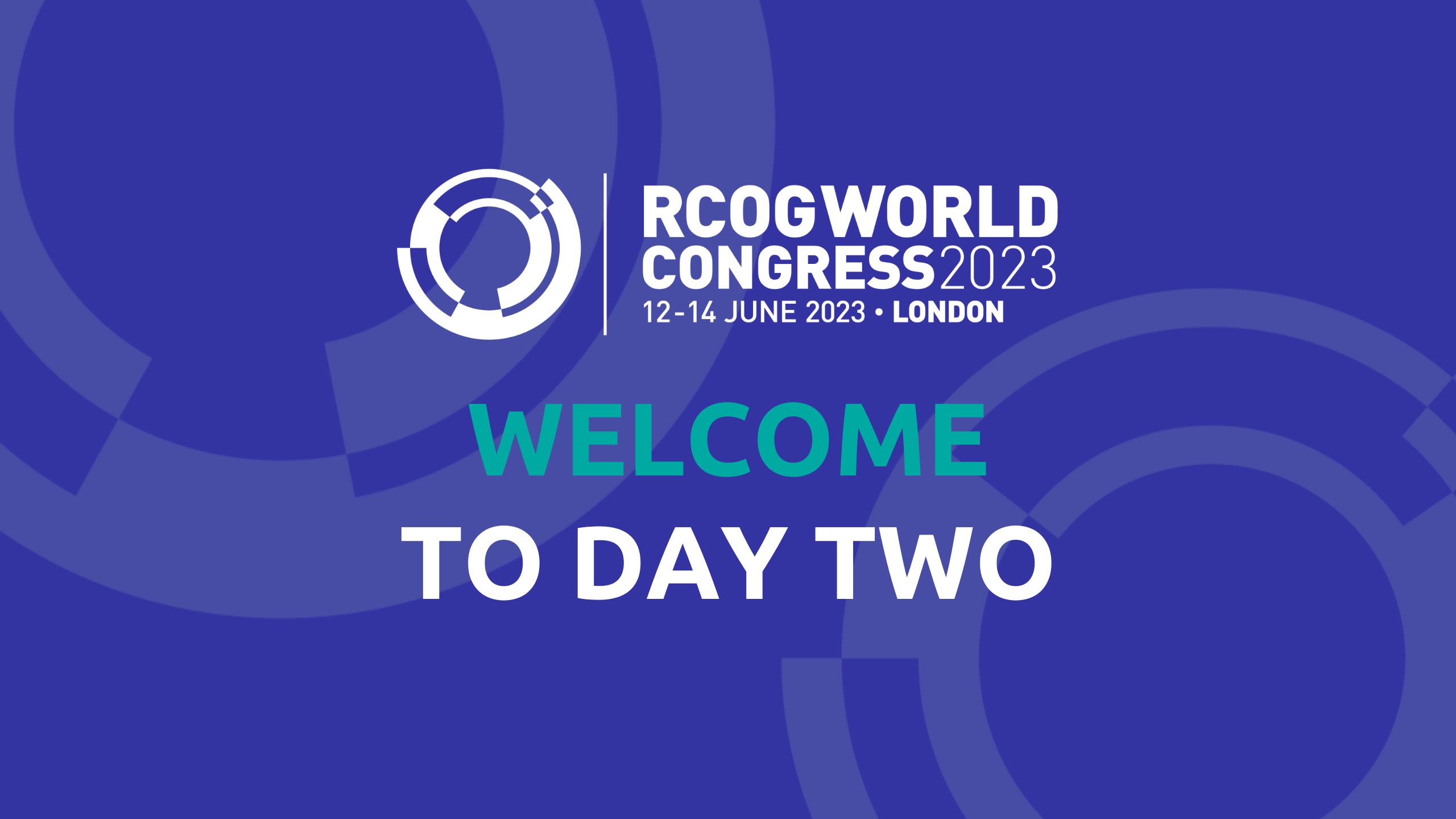

Refresh this page frequently to ensure you keep updated with the latest information.
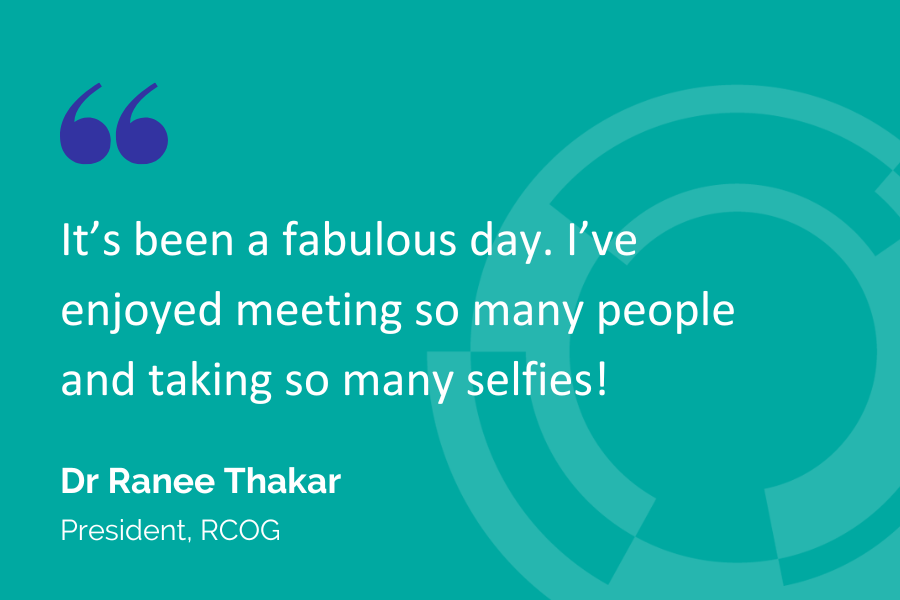
To finish off today's proceedings, Dr Ramesh Ganapathy and Dr Verda Hicks are in the live studio with President Dr Ranee Thakar and VP for Workforce and Professionalism, Dr Laura Hipple, for a wrap-up of day two.
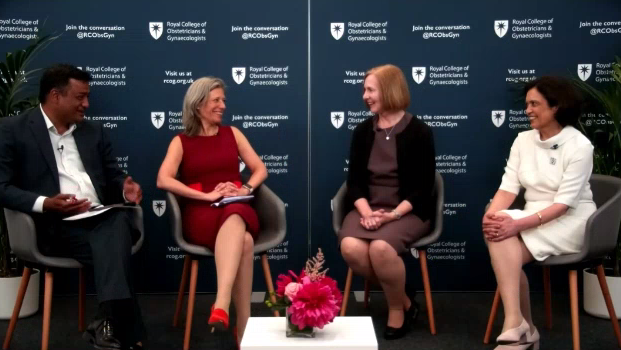

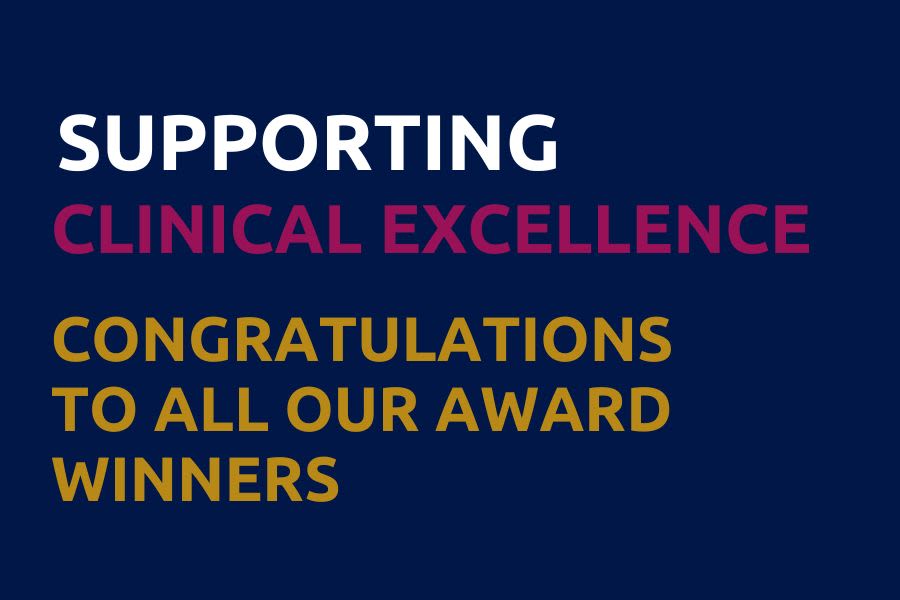
Best in-session poster presentations
Umme Habiba
Immediate removal of a urinary catheter; a step closer to enhanced recovery?
Oladipupo Olalere
Development of an Evidence-Based Nipple Care Pathway for New Breastfeeding Mothers
Amelia Fisher
Personalised Vulval Care Plans: Individualising the management of vulval skin conditions
Charla Mae Co
Hyperemesis Gravidarum Resulting to Myocardial Infarction with Non-Obstructive Coronary Arteries (MINOCA)
Emily Smitten
Why are patients with primary ovarian cancer not receiving standard treatment?
Nargis Mahmood
Risk Assessment by Stratification of Raised sFlt-1/PlGF Ratio in Suspected Pre-eclampsia
Malaika Jindal
Safe and effective vagal-nerve-stimulation for new-onset refractory status-epilepticus (NORSE) in early pregnancy
Amanda Moore
Improving experiences of gestational diabetes in pregnancy and reducing future diabetes risk.
Jenna Frizelle (joint winner)
Carboprost: A safe second-line option in managing abortion and intrauterine fetal death?
Saroj Dalmia (joint winner)
Rare causes of secondary Post-Partum Hemorrhage (PPH)
Best in sesion oral presentations
Stream 1
Sofia Mastrodima-Polychroniou
Outcomes of fetal surgery for open spina bifida, under NHS commissioning
Stream 2
Jocelynn Cook
Prenatal substance exposures and mental health trajectories
Dyuti Coomar
Lifestyle interventions to prevent gestational diabetes mellitus (GDM): individual participant data meta-analysis
Stream 3
Katie Cornthwaite
Qualitative, simulation study of impacted fetal head (DiSIMpact): lessons for skills training
Stream 4
Yvonne Neubauer
Experiences of early medical abortion clinicians adopting telemedicine during the Covid-19 pandemic
Stream 5
Eleanor Jones
Multivariable diagnostic models to predict endometrial cancer in women with postmenopausal bleeding
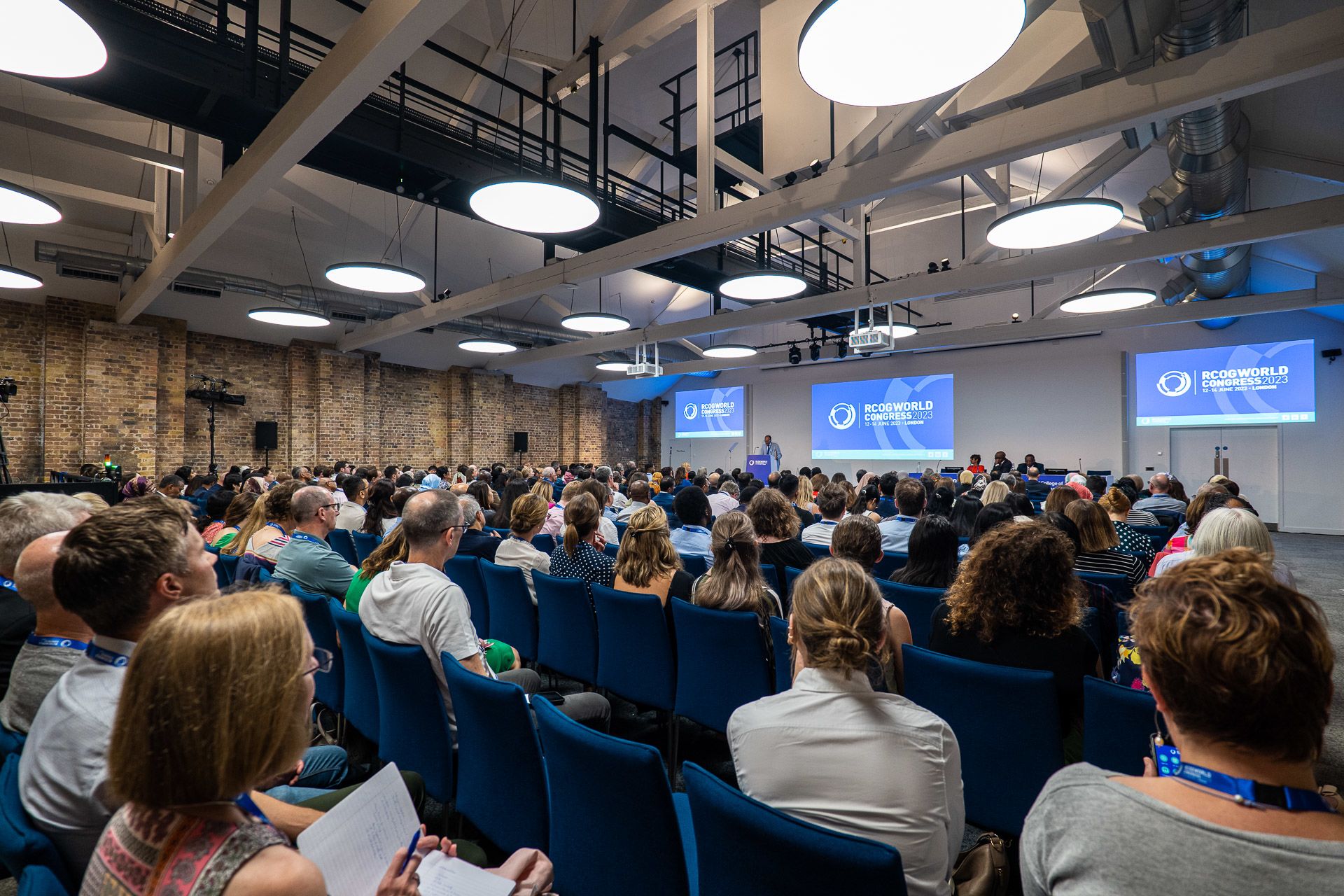
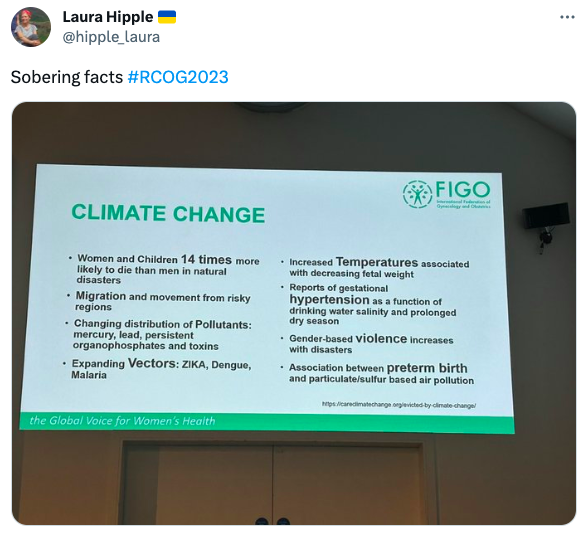
RCOG VP Laura Hipple watching on towards the end of day two.
RCOG VP Laura Hipple watching on towards the end of day two.
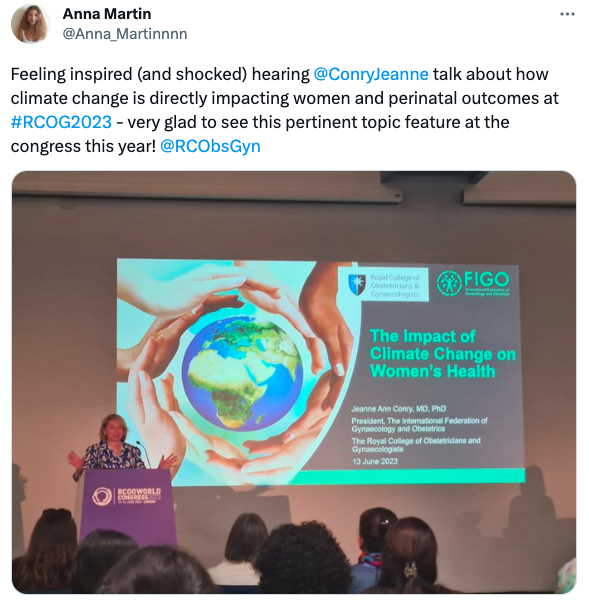
In just over a century, climate change has warmed the average earth temperatures by 1.2 degrees C, and many parts of the globe have warmed up to 3 degrees C.
There were 475 million additional heat wave events globally in 2019, natural disasters have tripled since 1960.
Dr Conry says climate change has a direct impact on fertility, prenatal outcomes, mental health, sexual health and reproductive rights, as well as survival.
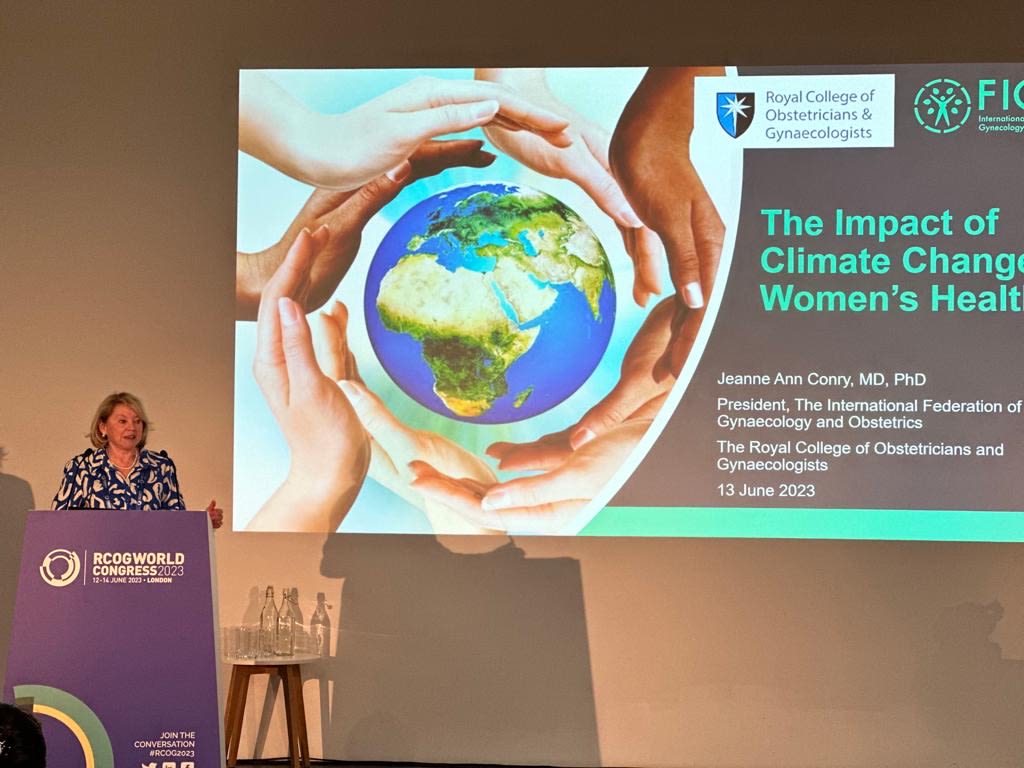
Our final plenary of the day is chaired by Ms Kate Lancaster, CEO of the RCOG and Professor Peter von Dadleszen. Our speaker is Dr Jeanne Conry, President of the International Federation of Gynaecology and Obstetrics:
She was the 64th President of the American College of Obstetricians and Gynaecologists. She chairs the Women’s Preventive Services Initiative and is vice chair for the PMNCH PECC and a member of its Health Care Professionals Association. Dr Conry leads global policy on climate change, reproductive health and the environment. Dr Conry earned her medical degree and residency at the University of California, Davis where she served as associate clinical professor. She has a PhD in biology from the University of Colorado.

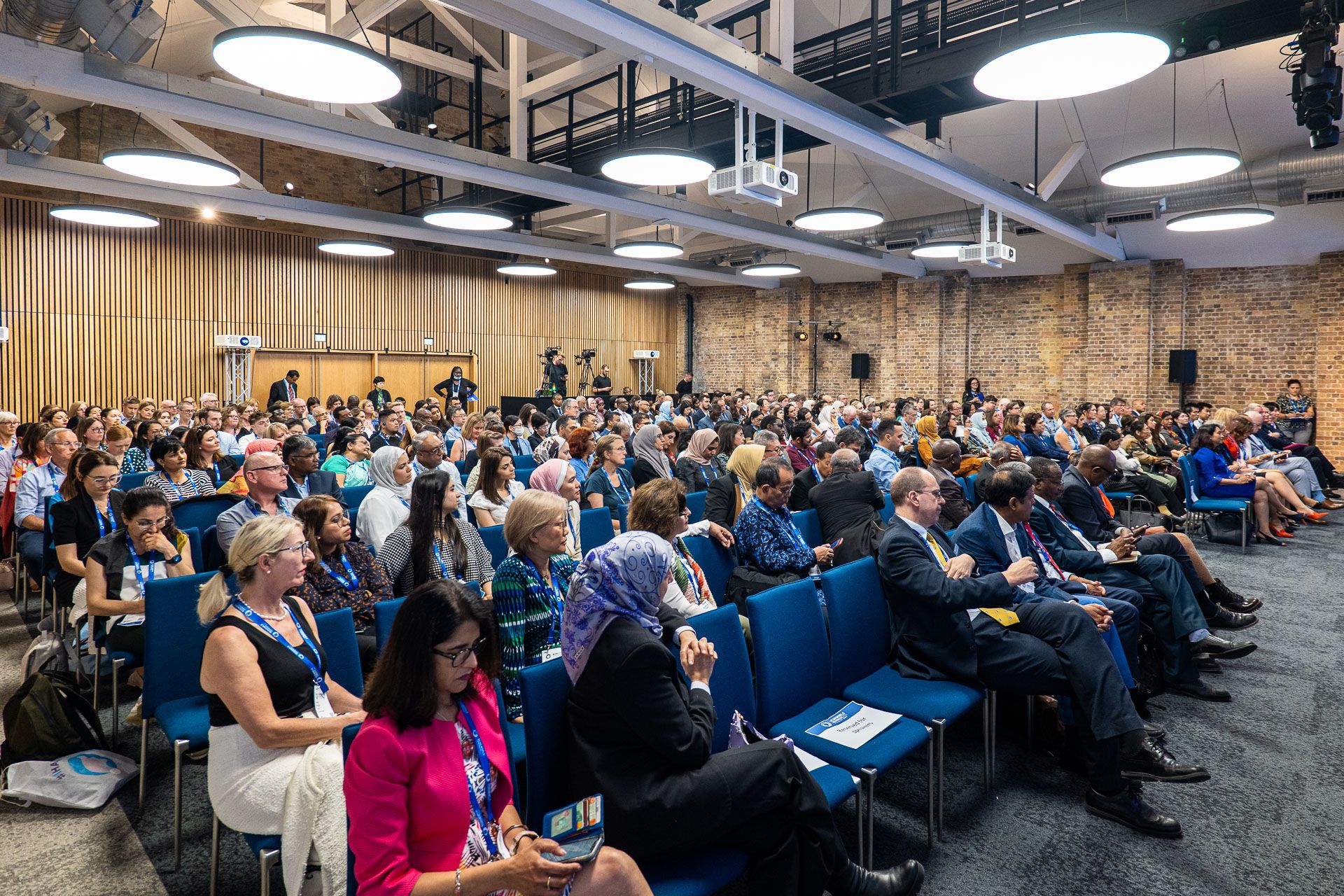
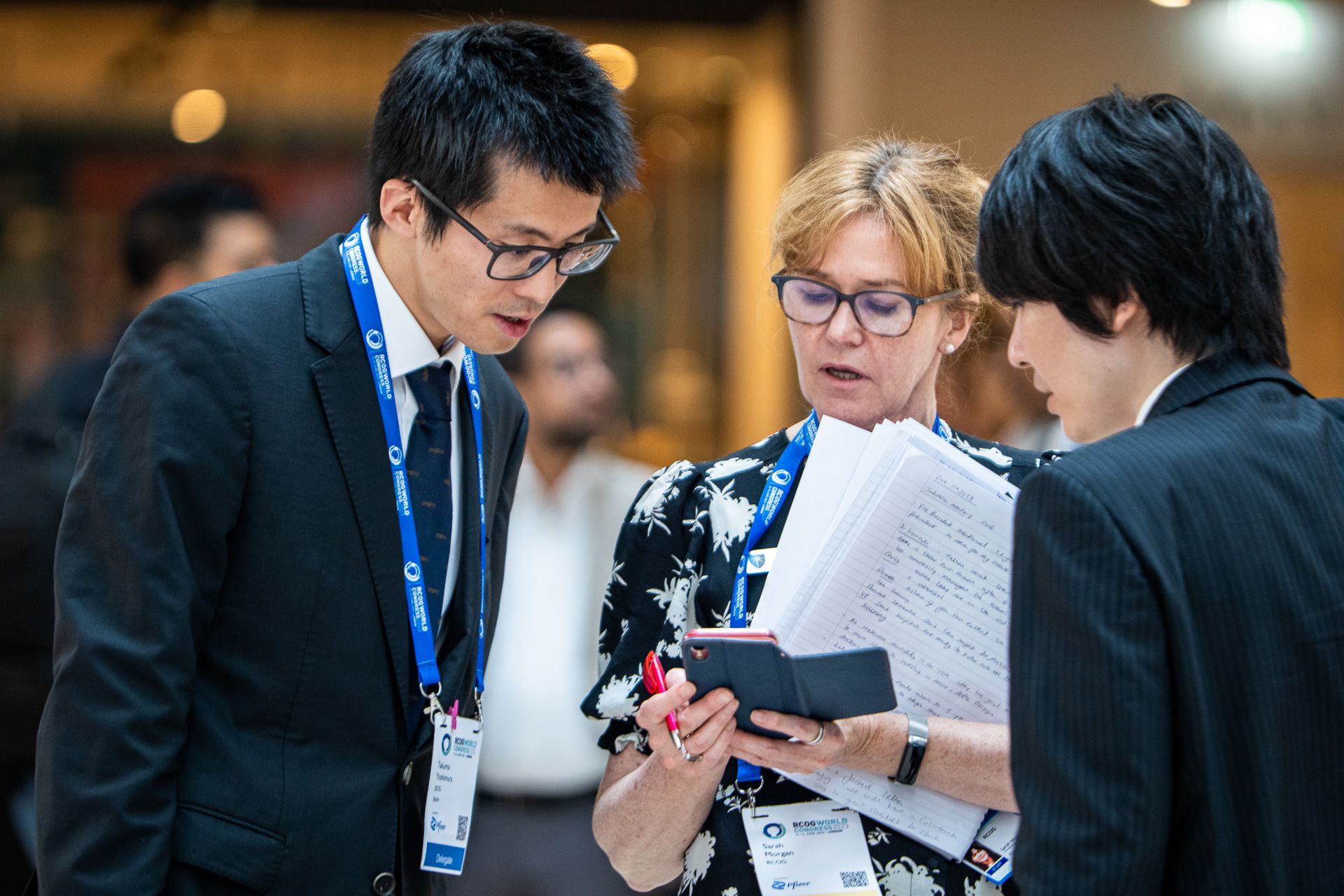
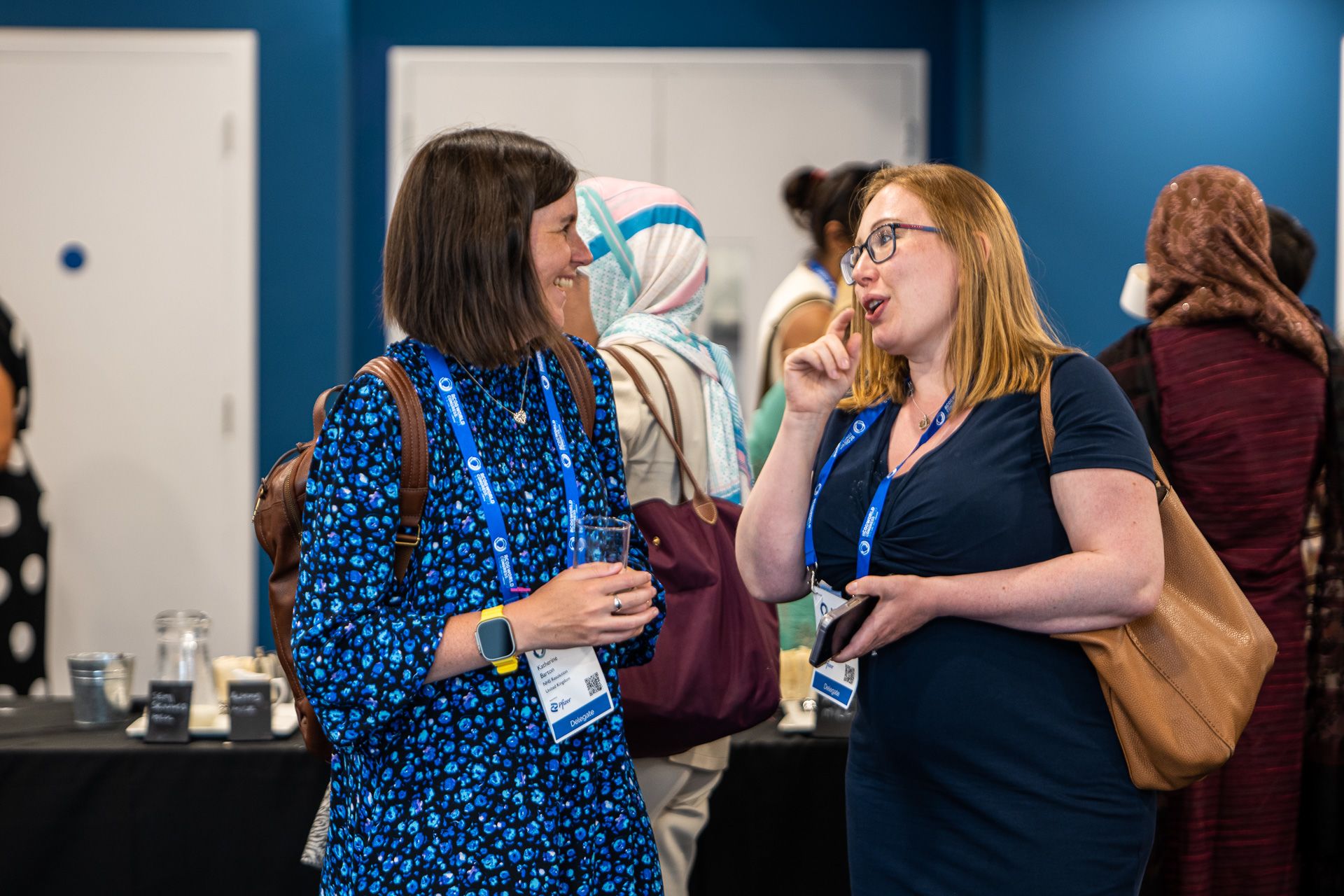
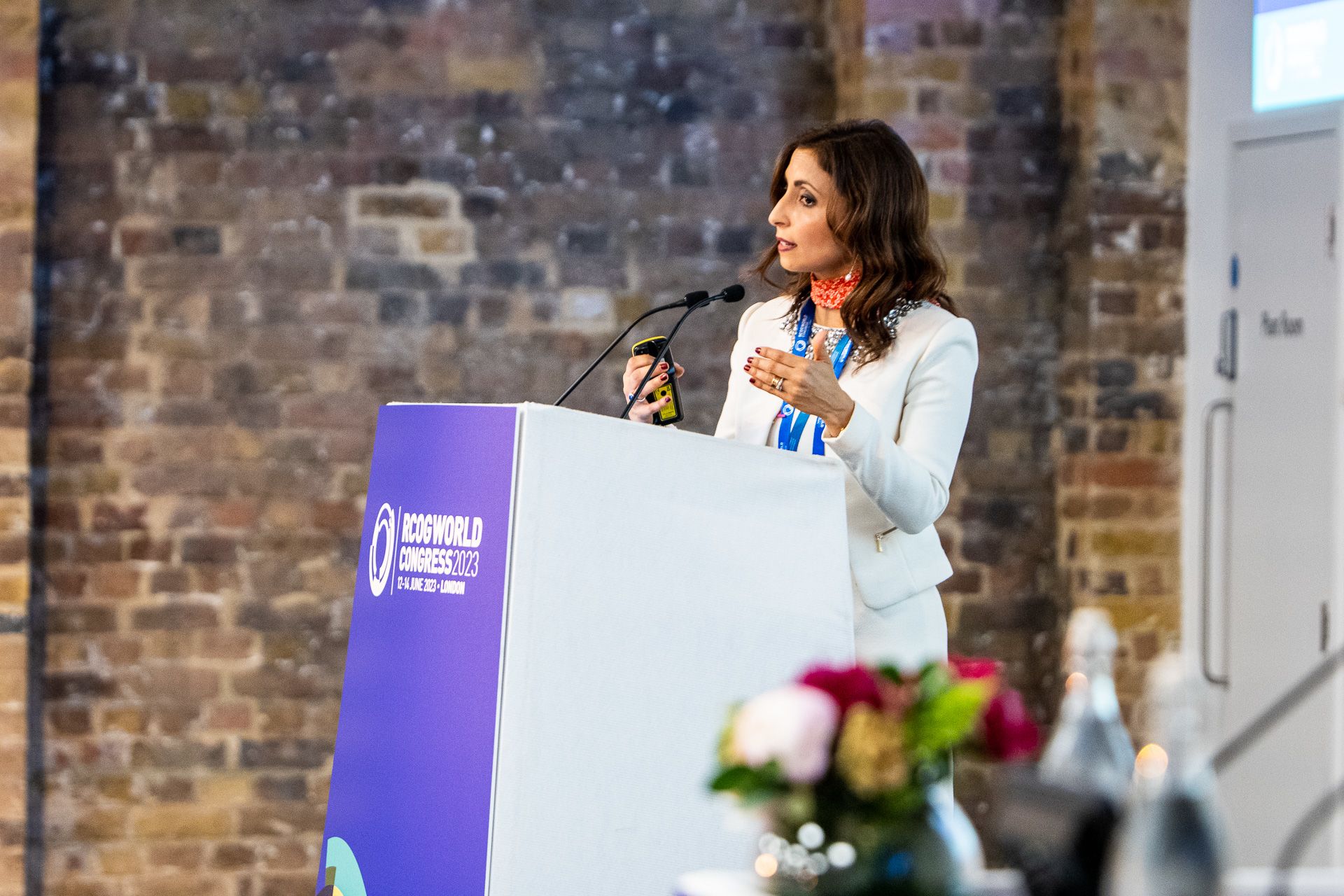
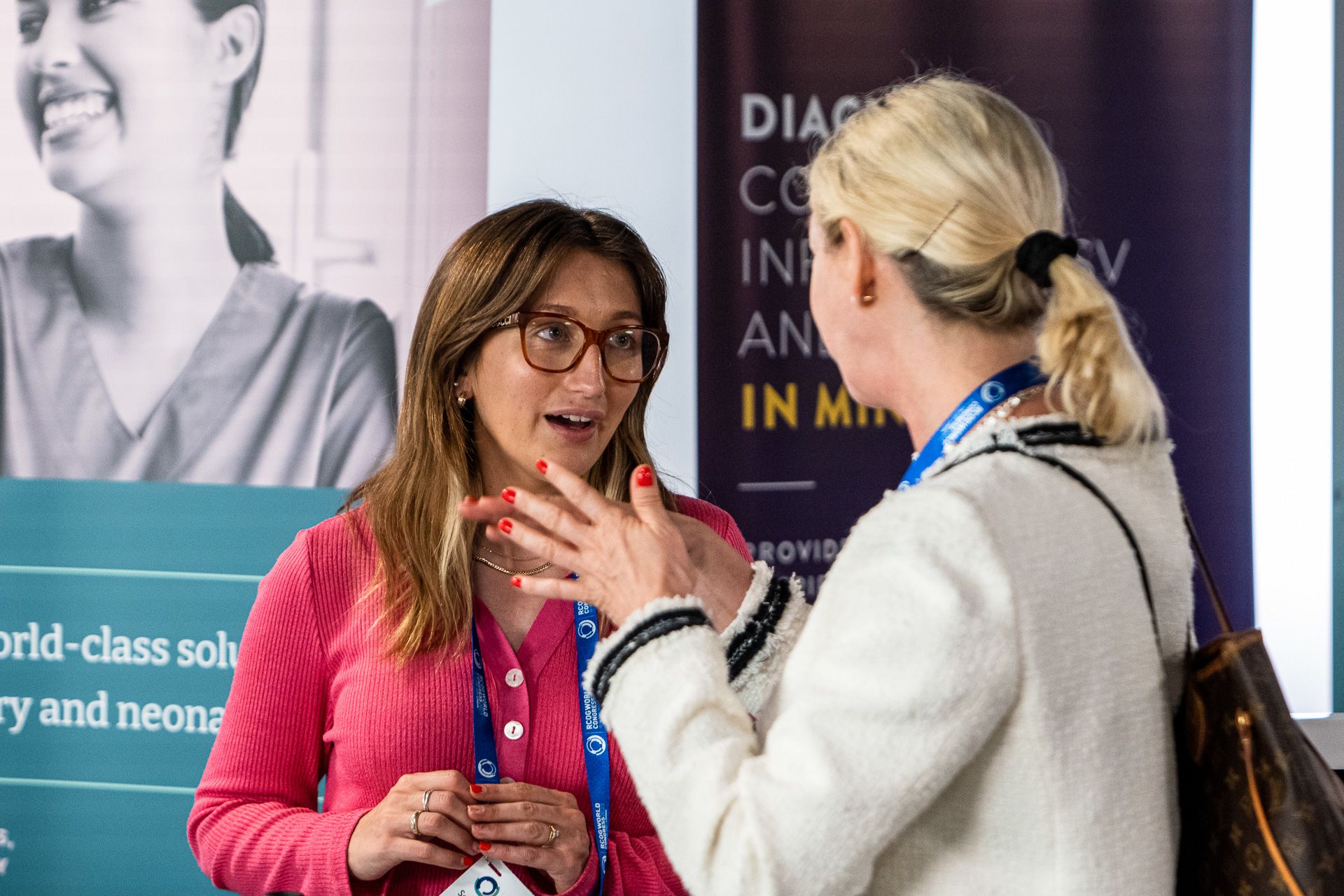






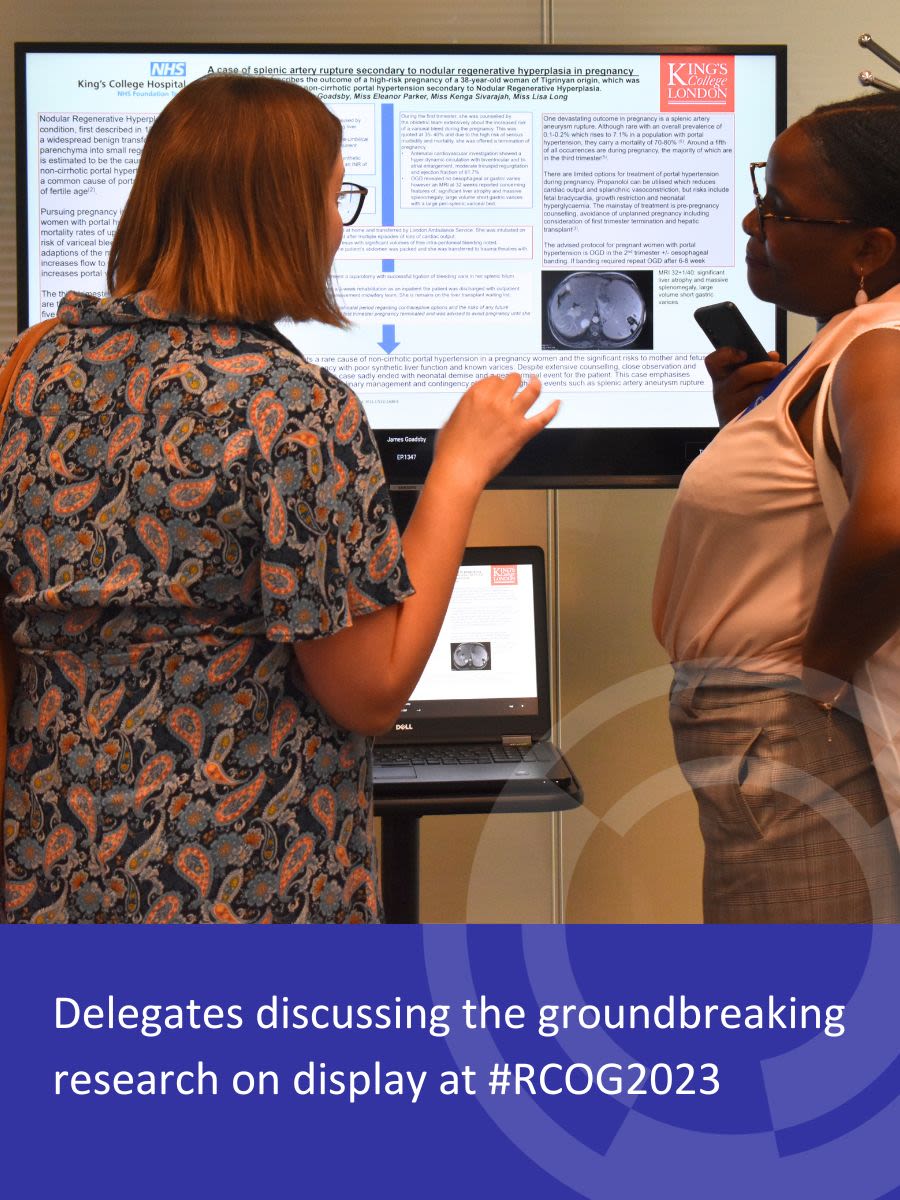
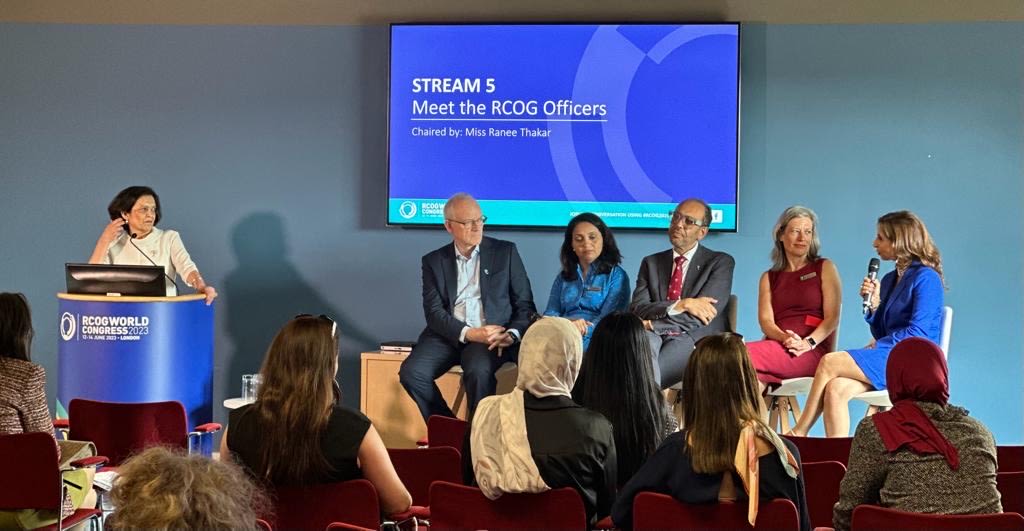
The Officers with RCOG President, Ranee Thakar, at this afternoon's session
The Officers with RCOG President, Ranee Thakar, at this afternoon's session
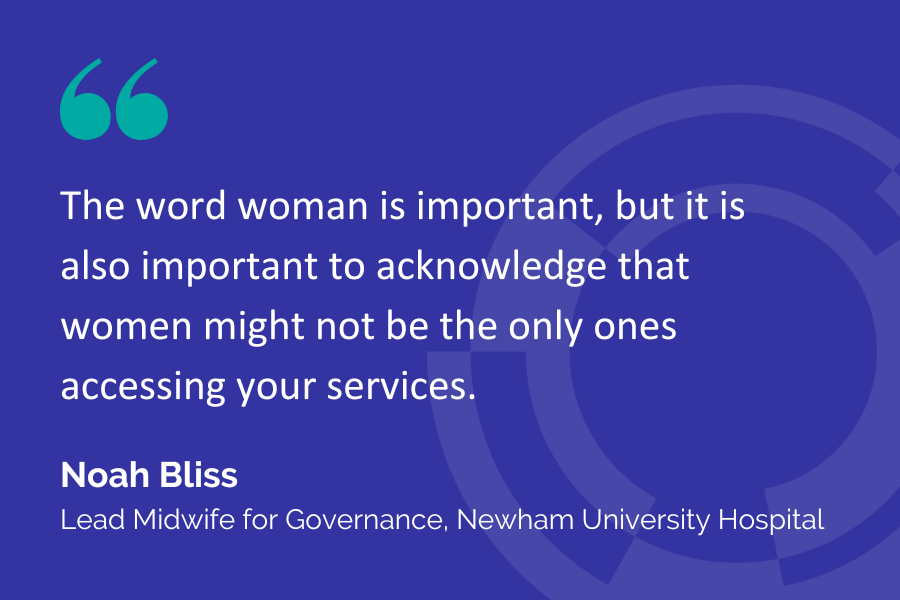
Later on in the session, Noah Bliss, Lead Midwife for Governance at Newham University Hospital, spoke about his experience as a trans man working in maternity care and the importance of inclusive language.
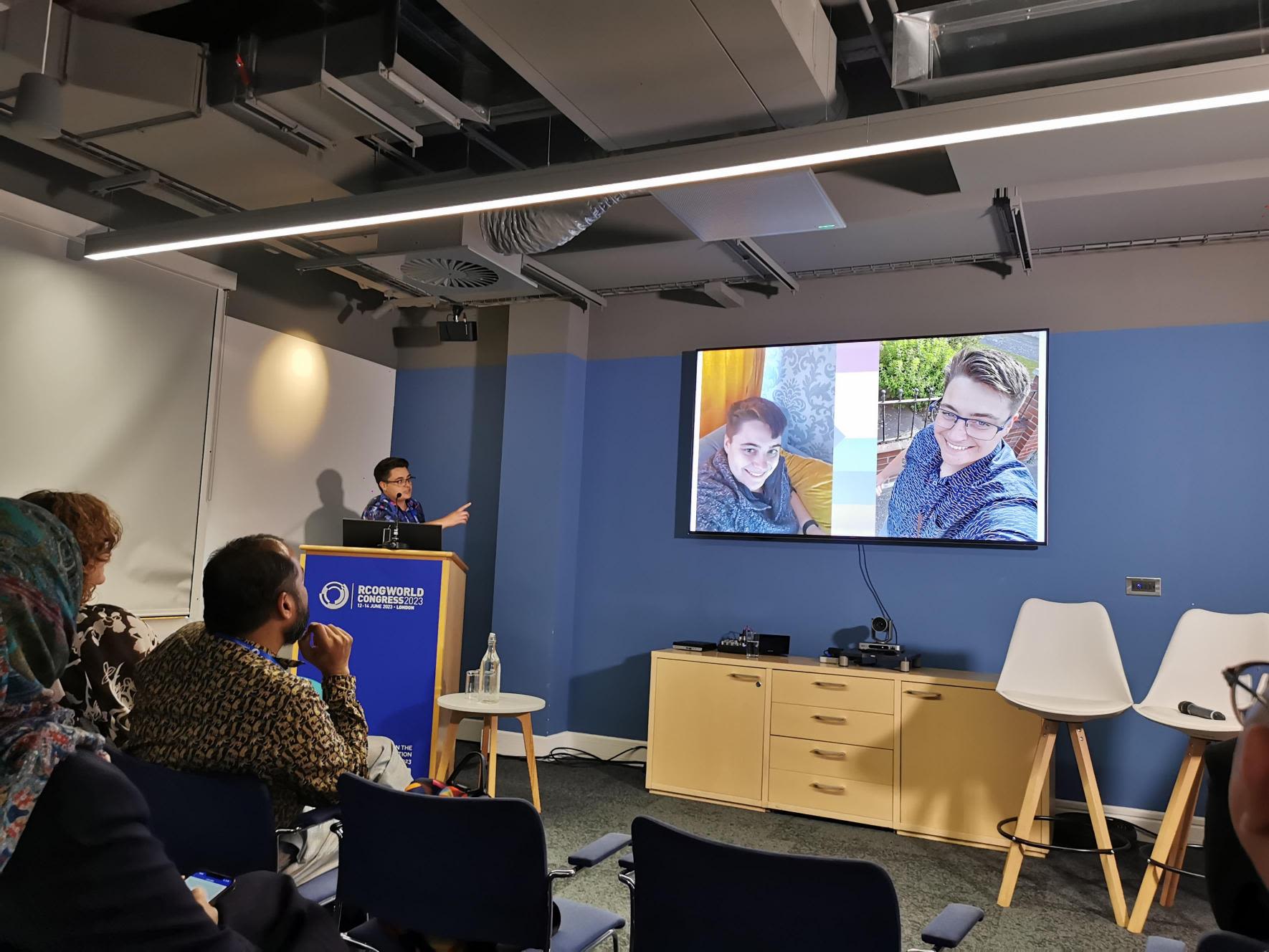
Noah Bliss during his talk on transitioning and trans inclusion in maternity care
Noah Bliss during his talk on transitioning and trans inclusion in maternity care
Dr Nori also emphasised that everyone with a cervix should have a cervical screening, including women who have sex with women.
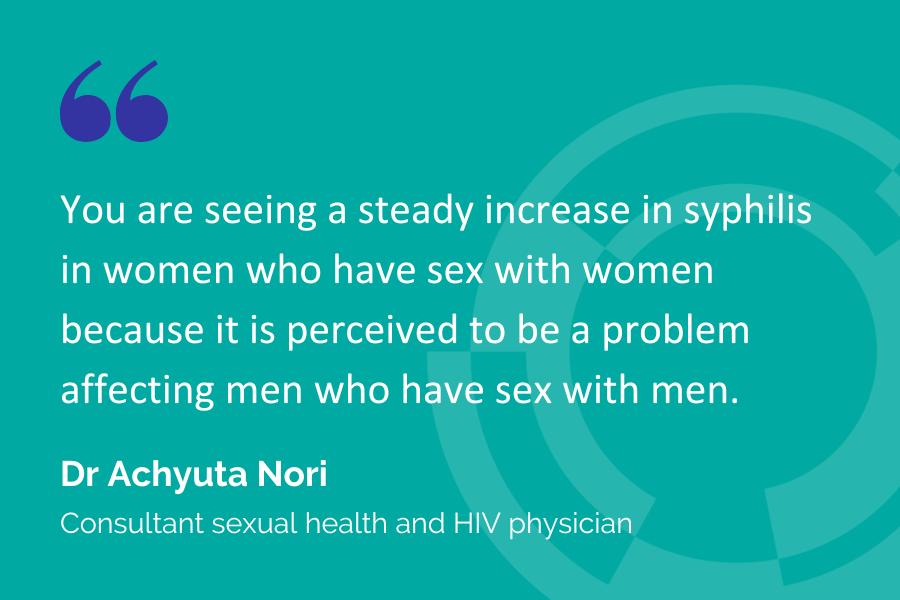
Dr Nori is a consultant sexual health and HIV physician and the clinical lead for sexual and reproductive health at Guy’s and St Thomas’ NHS Foundation Trust. He explained how some patients are told they are low risk for certain conditions when this is not the case, and that it is therefore important that women have individual risk assessments (e.g. for STIs).
Dr Achyuta Nori kicked off today's session on O&G care for LGBTQ+ people with a talk on the sexual health needs of women who have sex with women.

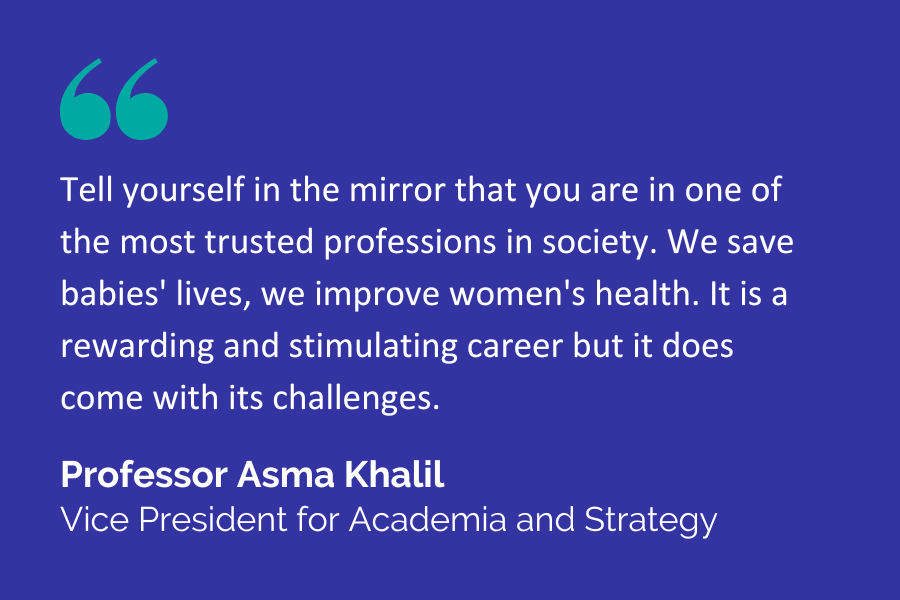
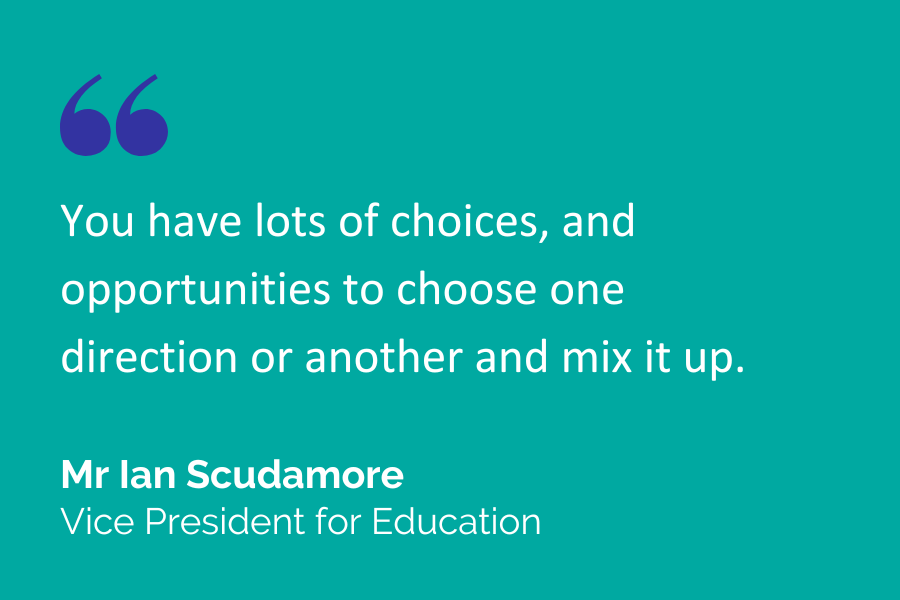
During the session, the Officers were asked what advice they would give their younger selves.
Professor Hassan Shehata, Senior Vice President for Global Health
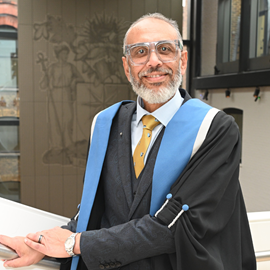
Hassan Shehata is a professor of obstetrics and gynaecology and a consultant obstetrician and maternal medicine subspecialist. His NHS base is at Epsom and St. Helier University Hospitals, where he runs busy tertiary maternal medicine and recurrent miscarriage services.
Mr Ian Scudamore, Vice President for Education
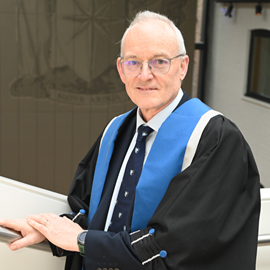
Ian Scudamore has been a consultant for over 25 years and has clinical interests in reproductive medicine, minimal access surgery, and fetal and maternal medicine, providing each as a clinical subspecialty interest, as well as having a general O&G commitment.
Mrs Geeta Kumar, President for Clinical Quality
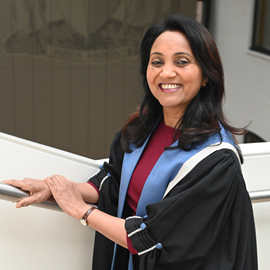
Geeta Kumar has been a consultant obstetrician and gynaecologist since 2003 and is currently the clinical lead for Women’s Services at Betsi Cadwaladr University Health Board, the largest health board in Wales.
Professor Asma Khalil, Vice President for Academia and Strategy
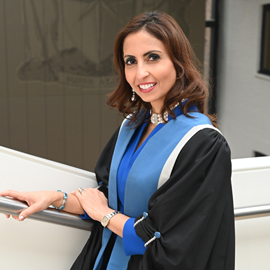
Asma Khalil has been a consultant in obstetrics and fetal medicine at St George's University Hospital since 2012 and director of fetal medicine at Liverpool Women’s Hospital since 2021.
Much of Asma's research has focused on twin and multiple pregnancies, including work she has presented this year at #RCOG2023. In this blog, Asma explains some of her latest research findings.
Laura Hipple, Vice President for Membership and Workforce
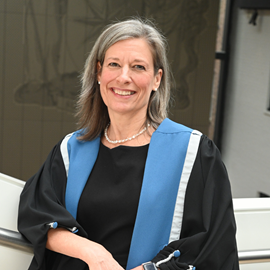
Laura Hipple has worked as an associate specialist in North Cumbria since 2003, where she is currently also SAS doctor lead and tutor.
President Ranee Thakar
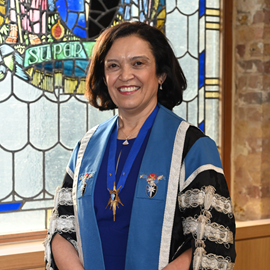
Ranee is a consultant obstetrician and urogynaecologist at Croydon Health Services NHS Trust and honorary senior lecturer at St George’s University of London.
There are six honorary Officers, who each serve for a maximum of three years. The President is elected by Fellows and Members in the UK and Ireland, while the five Vice Presidents are elected by the RCOG Council. The current President and Vice Presidents were elected to office in 2022, and will serve a three-year term.

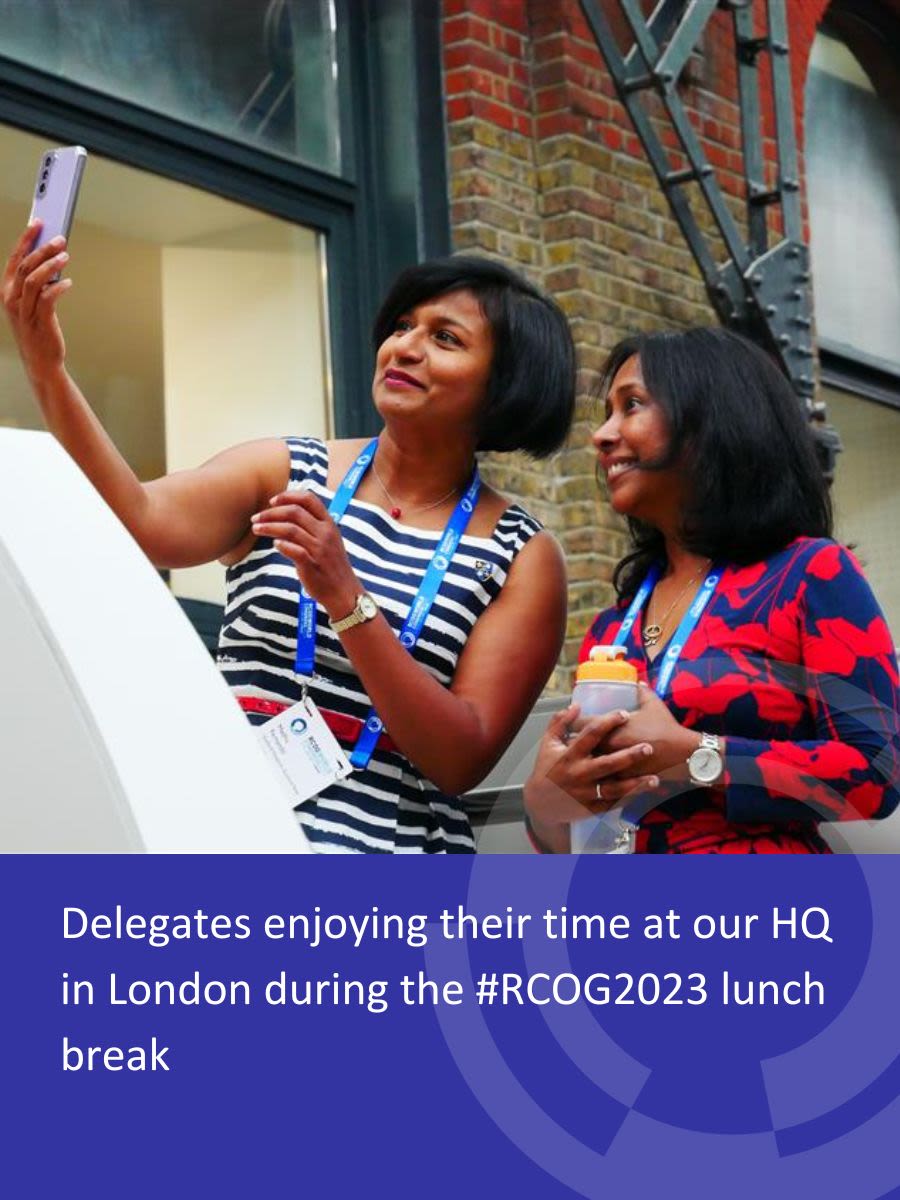
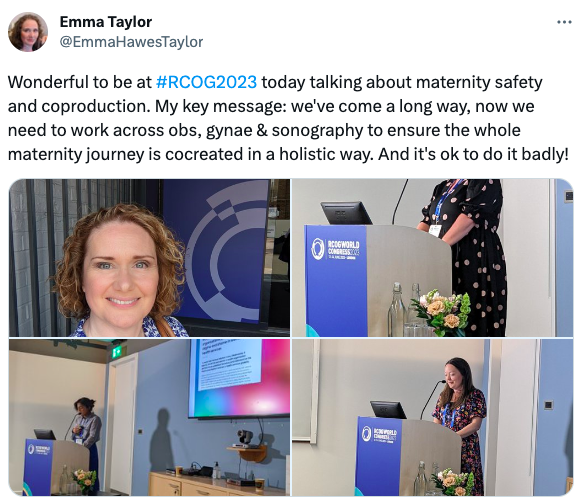
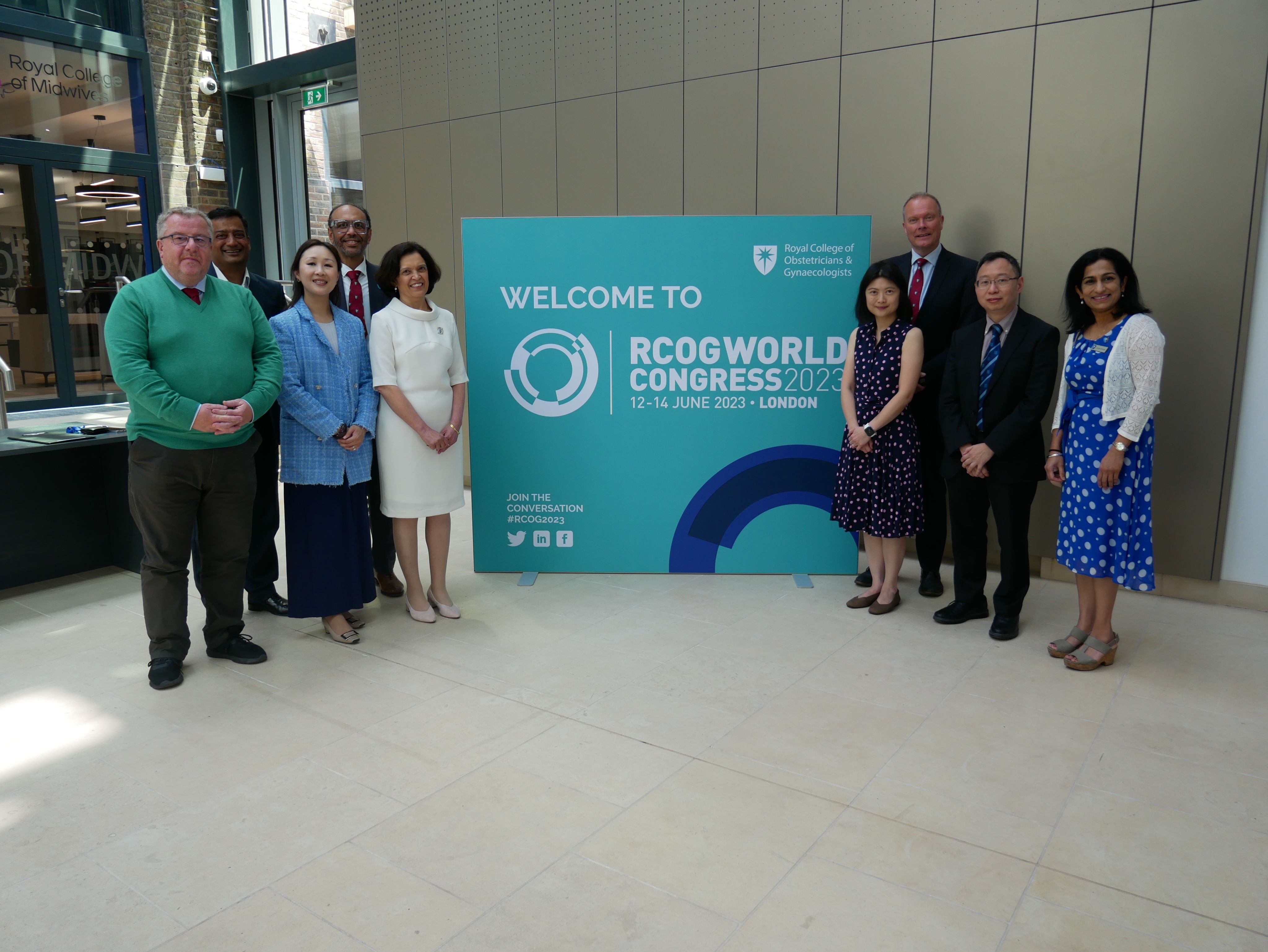
Our fantastic World Congress Scientific Committee
Our fantastic World Congress Scientific Committee
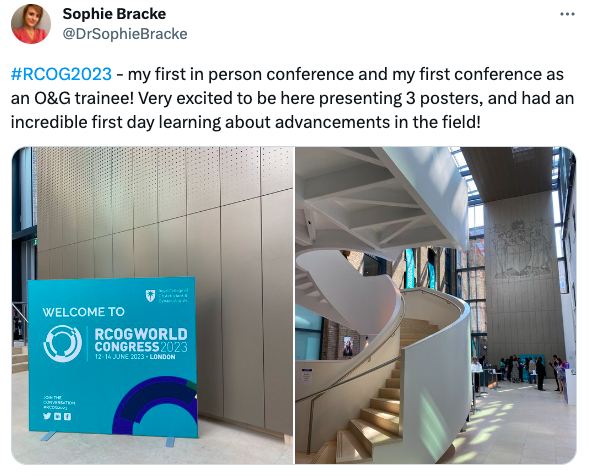
Some of our delegates' reflections on Professor Greenberg's talk:
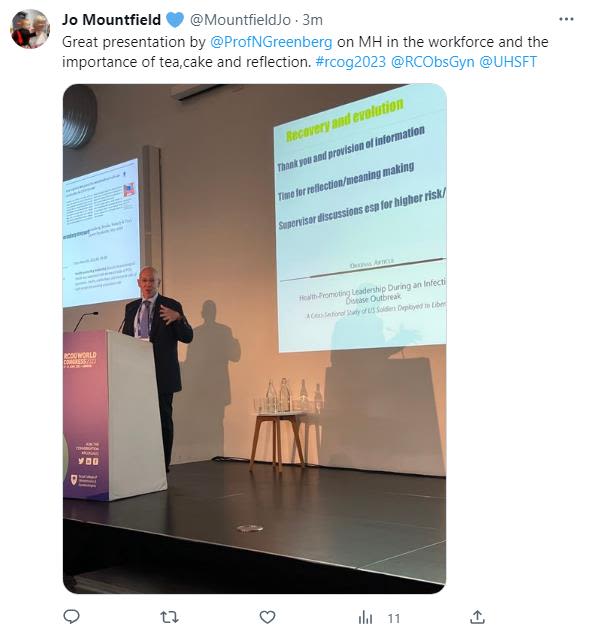

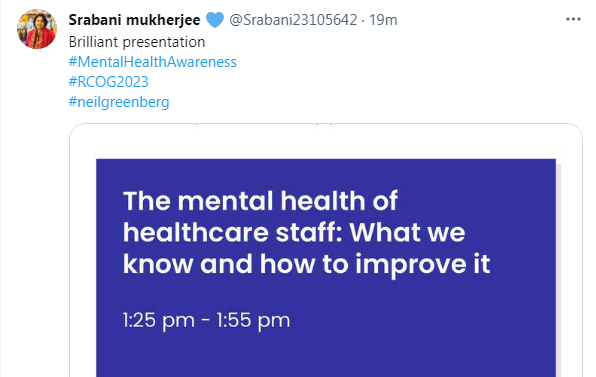
Supporting the O&G workforce and ensuring doctors are equipped and supported to deliver the highest levels of care to women and girls is a key strategic priority for the RCOG. On our website, we provide a range of resources to support our members at work.
An overwhelming majority of those working in O&G find it a stimulating and rewarding career. However, we understand that it can sometimes come with its challenges.
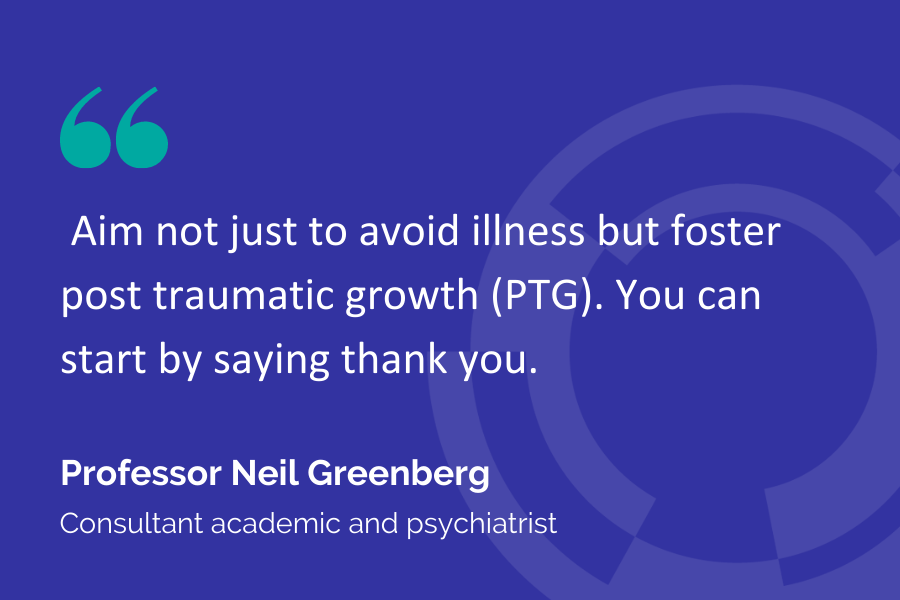
He emphasised that peer support and quality management are two of the most important factors in maintaining good mental health.
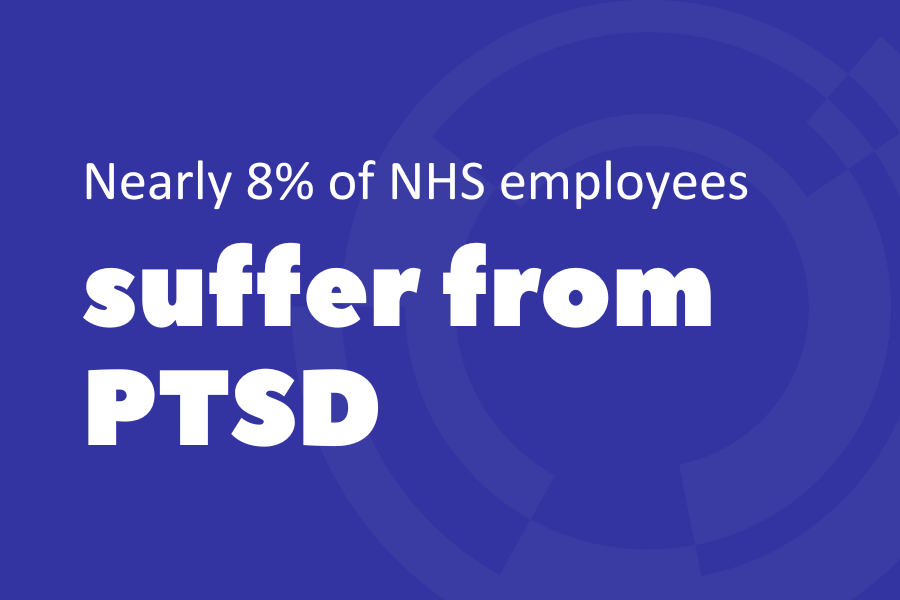
Professor Greenberg explained that distress caused in workplaces has a significant effect on clinicians. Nearly 8% of NHS employees suffer from PTSD, and 4% of NHS staff attempted suicide in the space of six months in 2021.
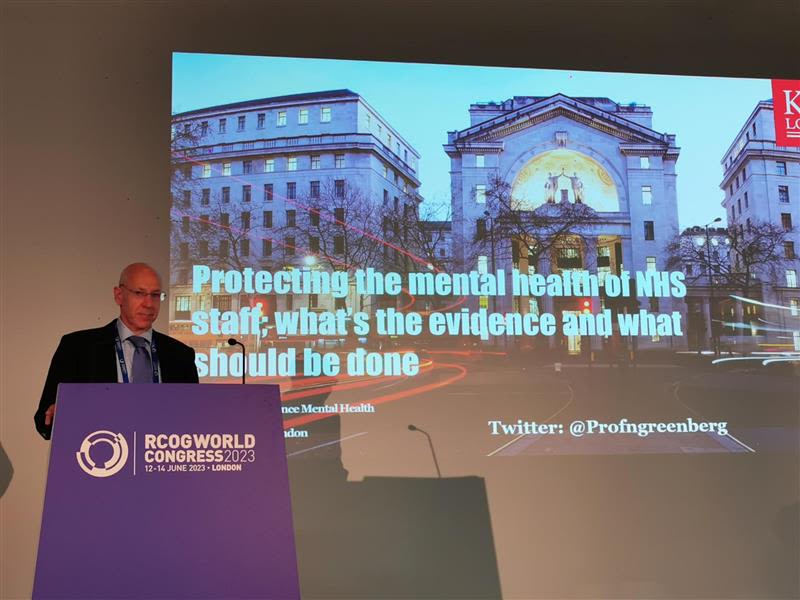
After a break for lunch, the second plenary discussion of day two is kicking off. Professor Neil Greenberg, consultant academic, occupational and forensic psychiatrist, is discussing the mental health of healthcare staff and how we can improve it.

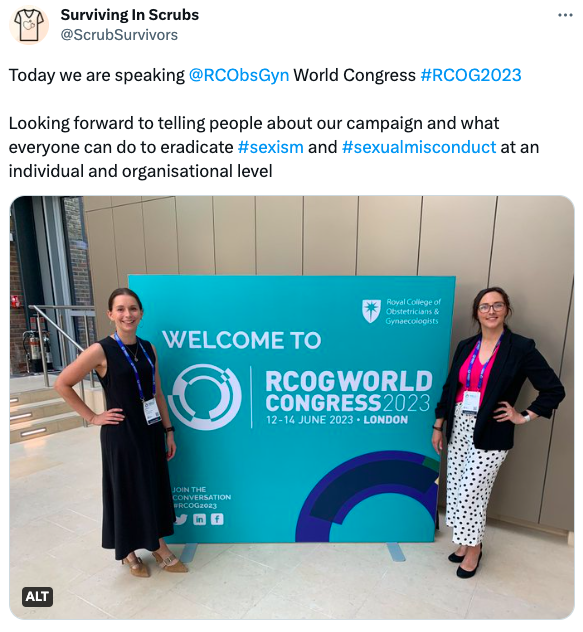
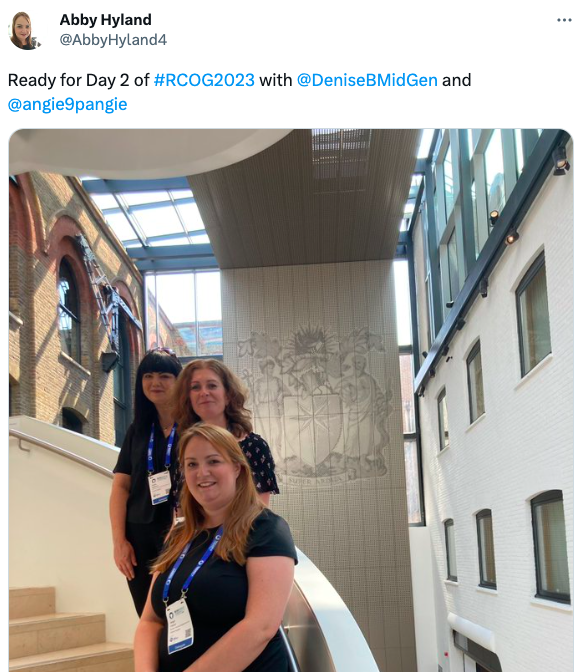
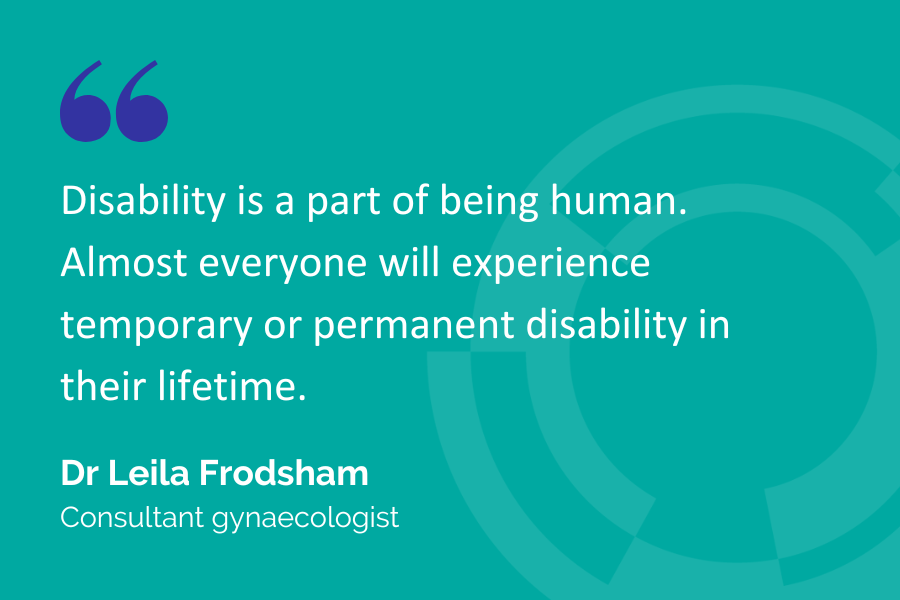
Sexual expression is vital for the wellbeing of disabled individuals in the same way it is for those without disability. Doctors should inquire about their patients' sexuality, be open and respectful, and let patients guide treatment.
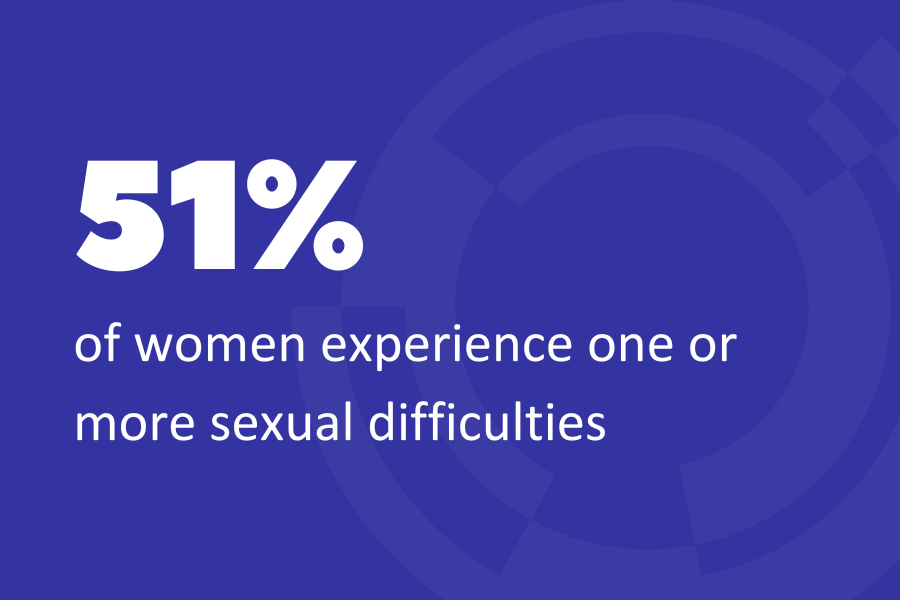
Dr Leila Frodsham then discussed how to support sexuality in the disabled.
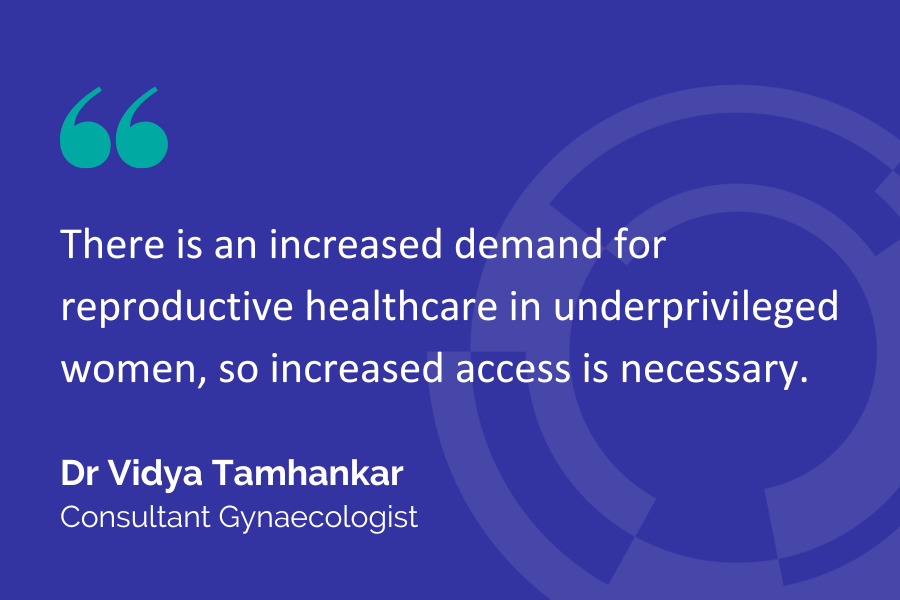
She explained that the main problem with women who are underprivileged is that they don't come in recognising they are underprivileged. This means that clinicians may have to do more than they would in standard practice to find out about them and provide the best care.
Mrs Vidya Tamhankar, Chairperson of the British Society of Biopsychosocial Obstetrics and Gynaecology, spoke about reproductive healthcare for underprivileged women.
This morning saw a varied programme of interesting talks, including a session about improving care for underprivileged women.

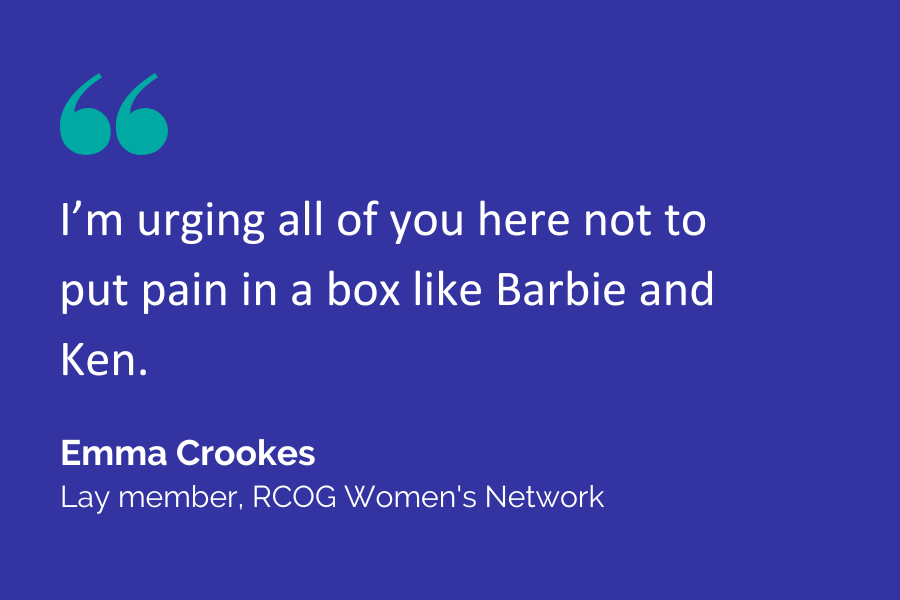
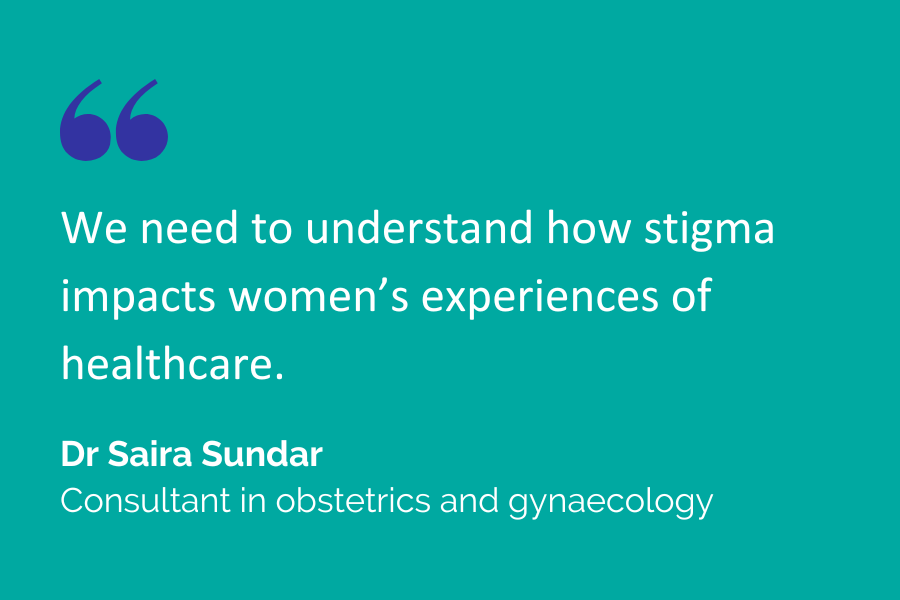
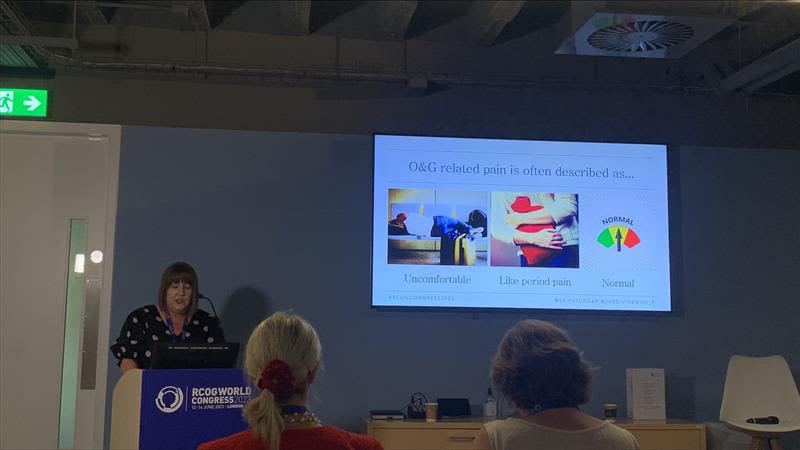
Emma Crookes from our Women's Network
Emma Crookes from our Women's Network
Later in the session, O&G Consultant Saira Sundar and Emma Crookes, a lay member of the RCOG Women's Network, discussed the impact of gynaecology conditions and women's experiences of pain.
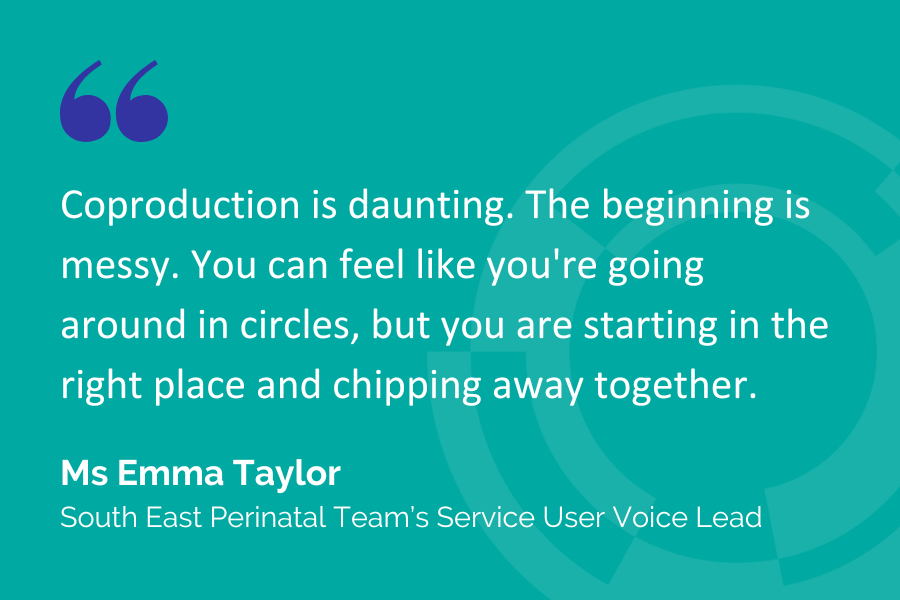
She explained that there could be better multidisciplinary working on coproduction, and that it is important to continue building relationships between staff and service users - but service user voice is now being included in lots of conversations, which is very positive to see.
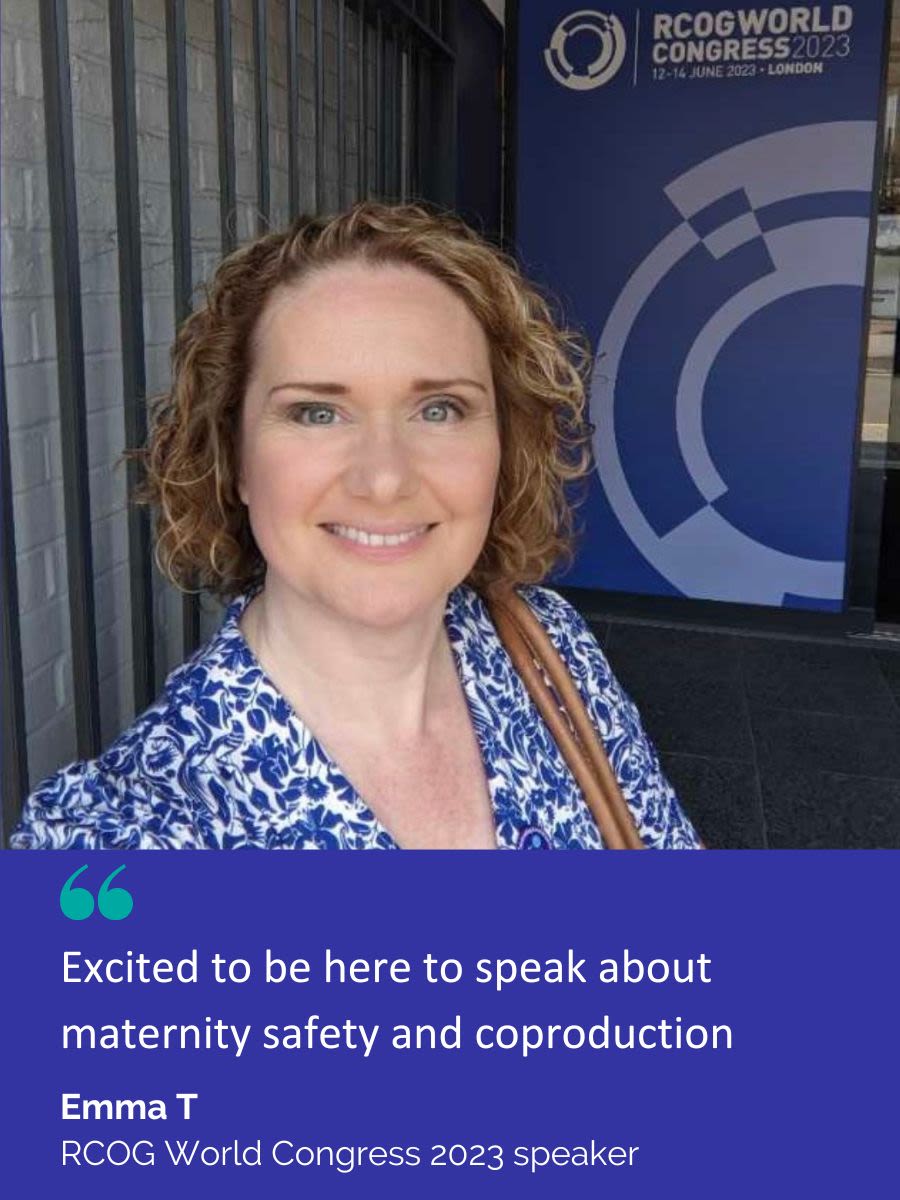
Emma has been involved in transforming maternity services by representing and advocating for women and families since 2015. She is currently the South East Perinatal Team’s Service User Voice Lead, as well as a Director of National Maternity Voices, and is an experienced Maternity Voices Partnership chair.
In the session on the RCOG Women's Network, Emma Taylor spoke about her work around maternity safety and service user involvement.

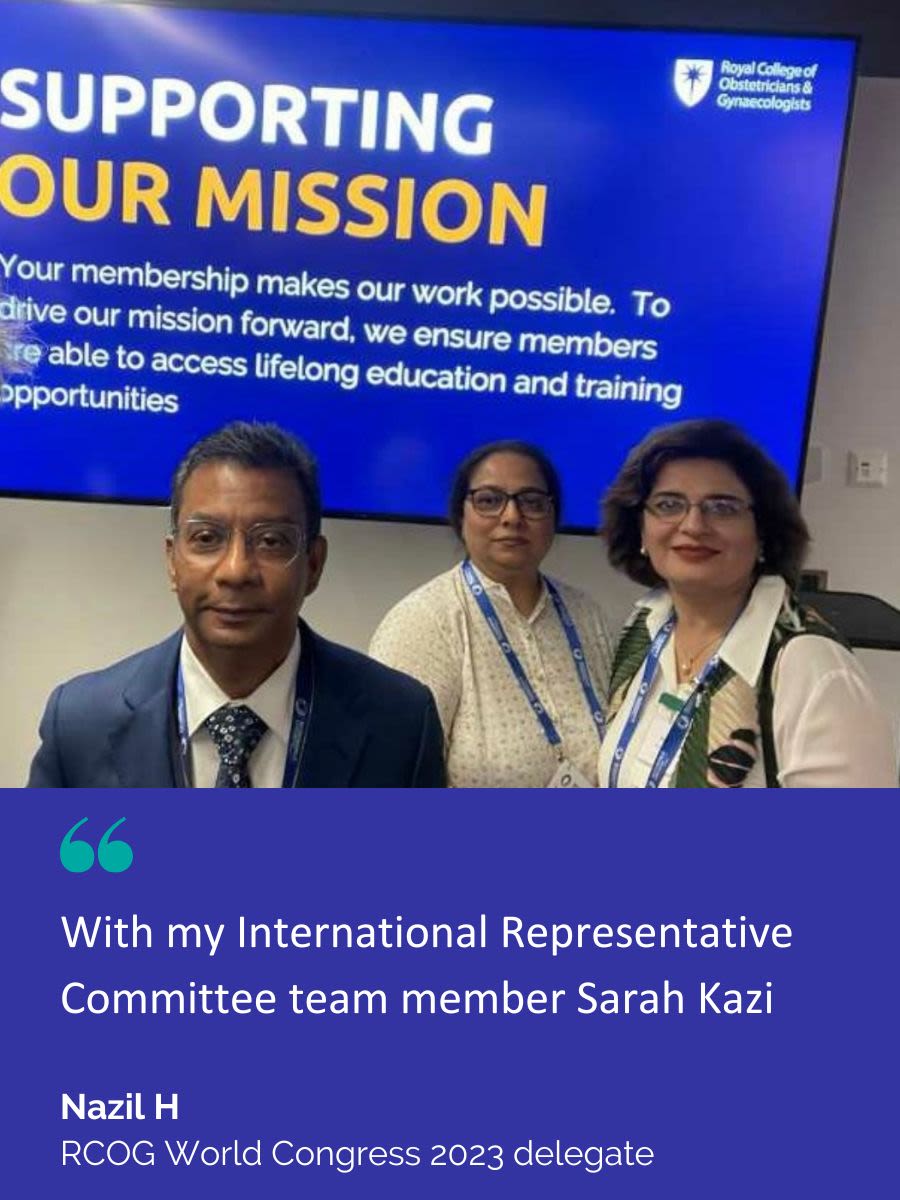
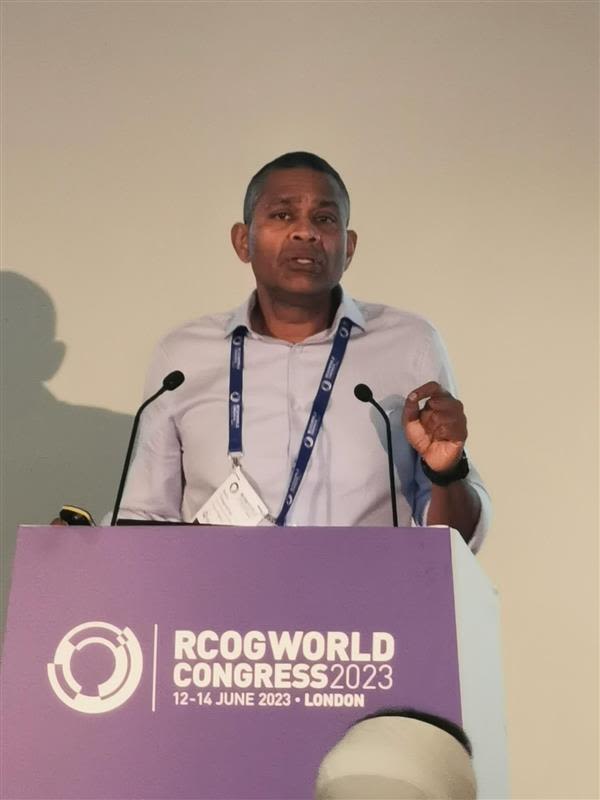
Professor Basky Thilaganathan during his talk on the Tommy's Pathway
Professor Basky Thilaganathan during his talk on the Tommy's Pathway
The Tommy's Pathway is being developed at the Tommy's National Centre for Maternity Improvement, a collaboration between the RCOG, the Royal College of Midwives and pregnancy charity Tommy's. You can find out more about the centre and the tool on our website.
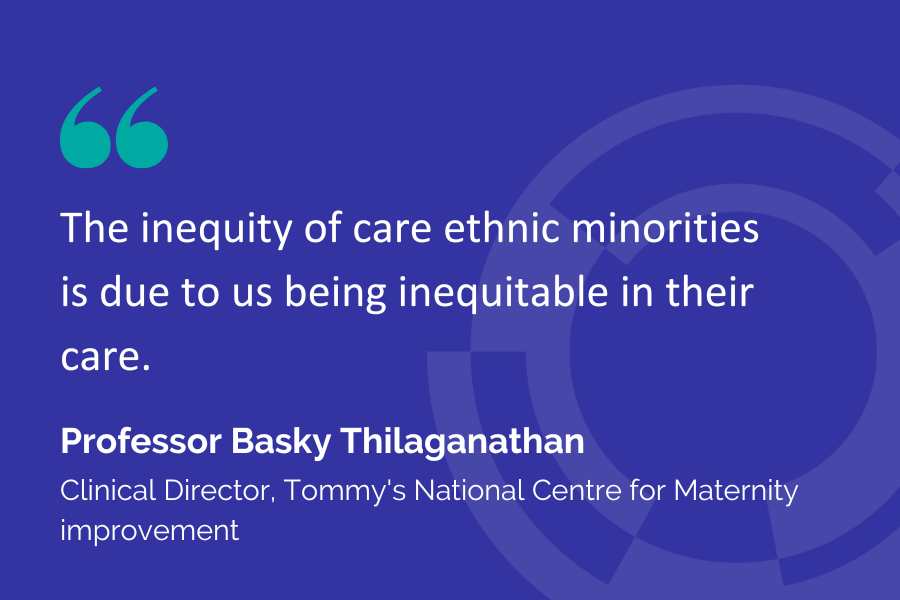
Social factors heavily impact women's risk level in pregnancy. The tool uses an algorithm to determine risk, including these factors in the calculation, and provides data which is easy for health professionals to communicate. It then provides suggestions for treatment.
The Tommy's Pathway is a clinical decision support tool shared between maternity healthcare professionals and women and pregnant people, to help ensure everyone is offered the right care at the right time no matter where they live.
Earlier in the maternal and fetal medicine stream, Professor Basky Thilaganathan, Clinical Director of the Tommy's National Centre for Maternity Improvement, shared the latest updates on the Tommy's Pathway.

In summary, Dr Jo Mountfield shared five key pieces of advice for leading successful teams:
- Be honest about whether your team is successful
- Know yourself
- Listen, listen, listen
- Ask for feedback-360
- Develop yourself
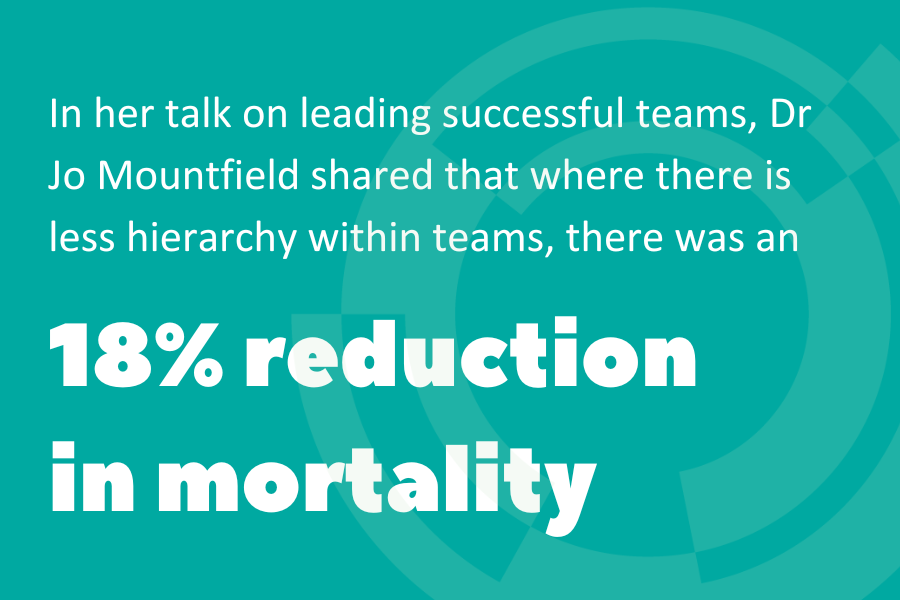
She explained that compassionate leadership matters for staff because it lowers stress, increases staff engagement and satisfaction and leads to improved financial performance.
Importantly for staff and service users, it also means there is better support and care for patients, better outcomes, improved satisfaction and lower mortality rates.
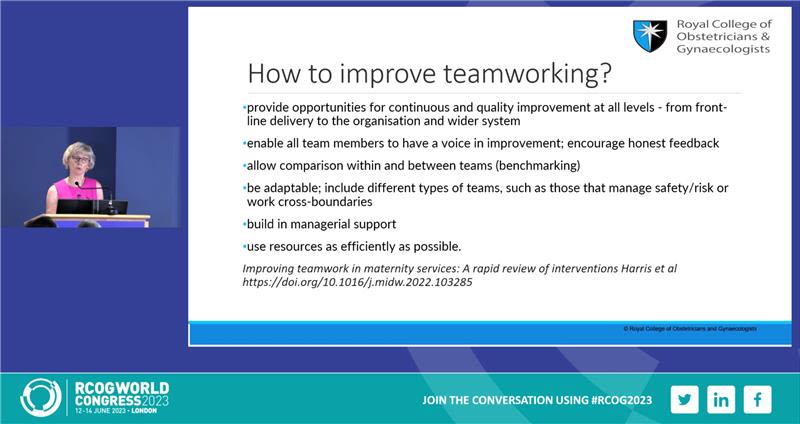
In the workforce and leadership session, Dr Jo Mountfield, former RCOG Vice President for Workforce and Professionalism, shared her advice for leading successful teams.

Fascinating talk from Cathy Nelson-Piercy on maternal and fetal medicine: the importance of timely and effective treatment of hyperemesis gravidarum (HG), including myth busting and challenges faced when pregnant.
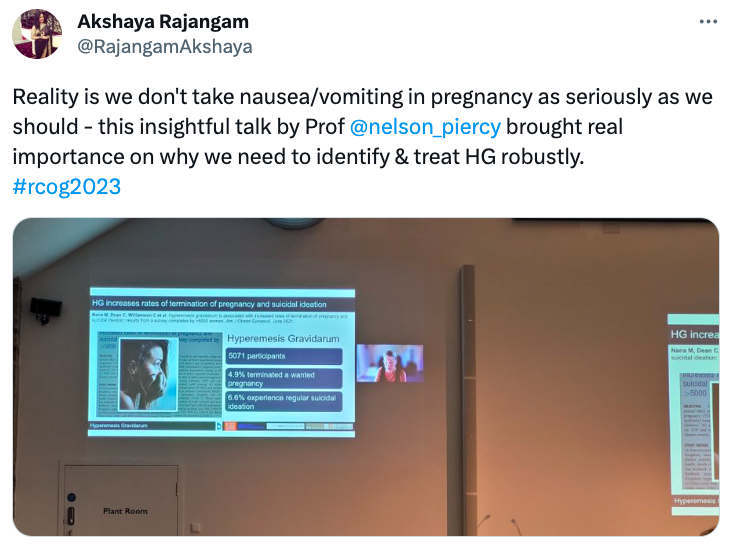

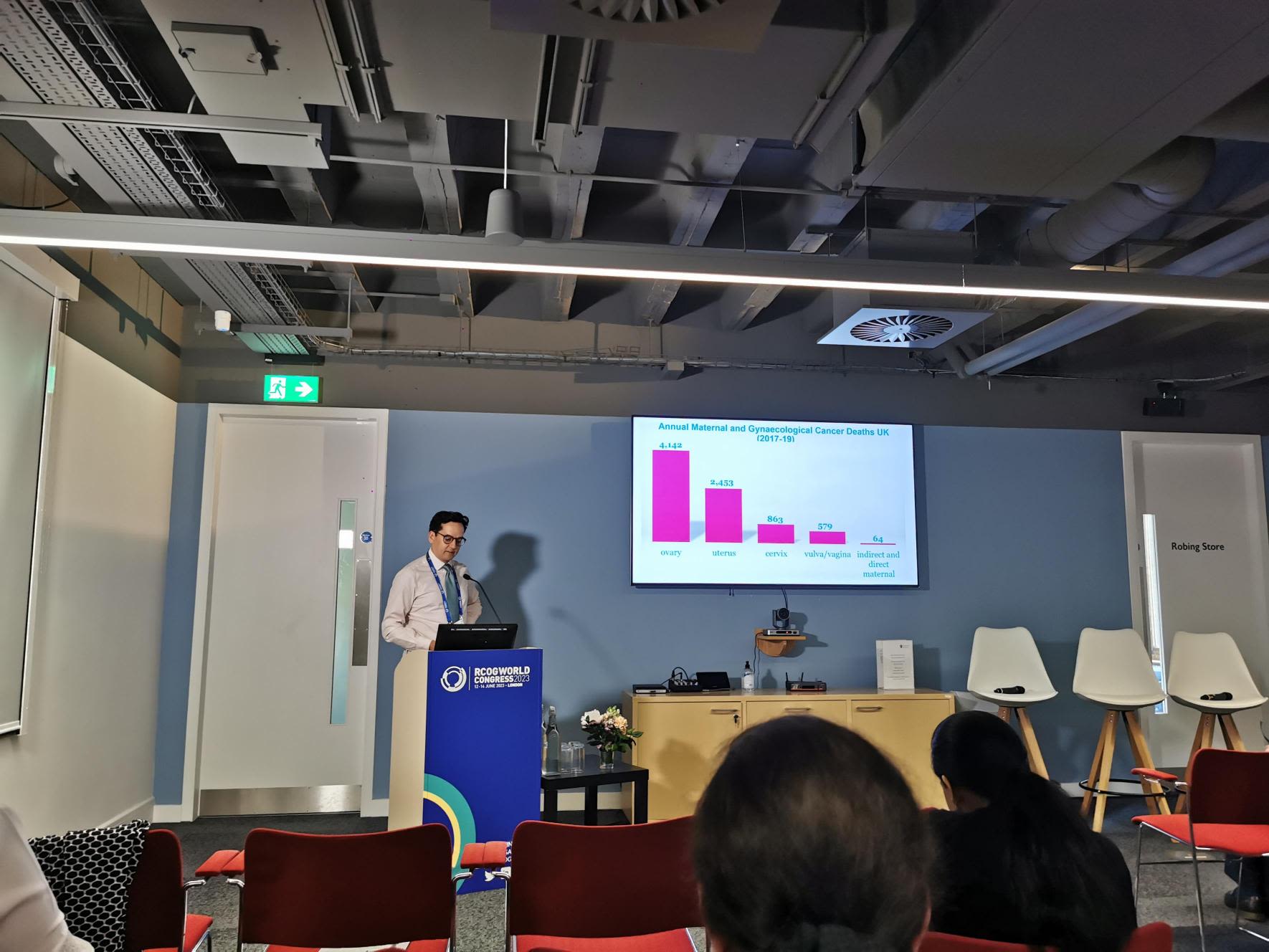
Gynaecological surgeon John Butler is now talking about worldwide variations in ovarian cancer survival, and how we can do more to ensure women across the globe have the best possible outcomes.
Professor Sudha Sundar says:
- The National Ovarian Cancer Feasibility Audit pilot is the first serious attempt in England to look at our ovarian cancer data
- This is one of the largest efforts examining variation in stage, treatment rates and survival for ovarian cancer
- We need to improve diagnostic pathways and treatment

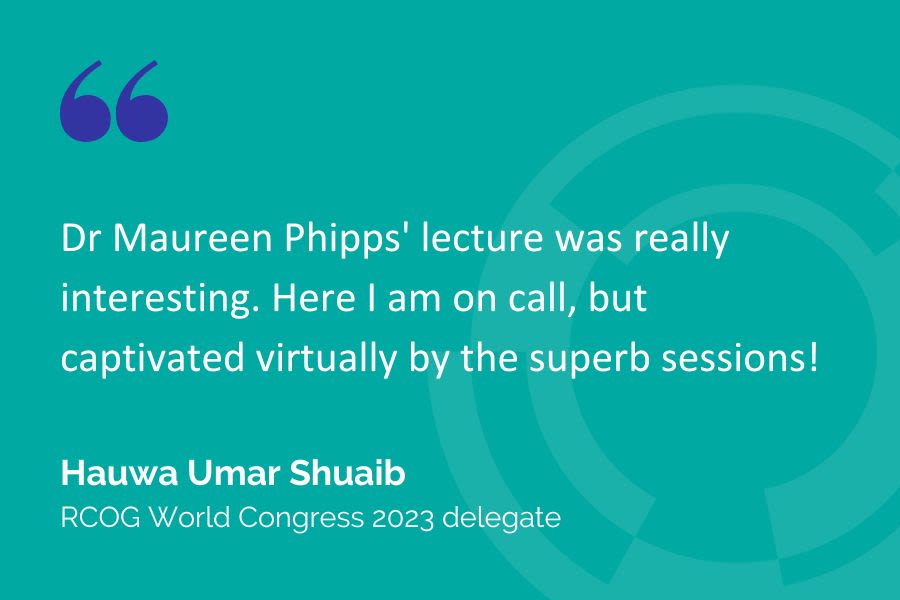

Delegates enjoying the sunny weather and sights here in London
Delegates enjoying the sunny weather and sights here in London
After a quick break, it’s time for more morning sessions with talks on topics across maternal and fetal medicine, sexual and reproductive health and gynaecological cancer.



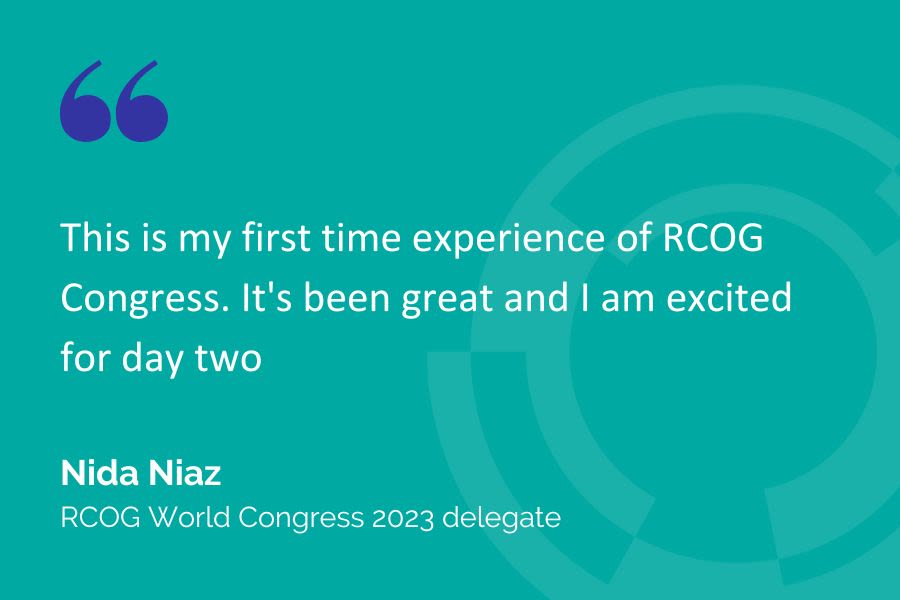
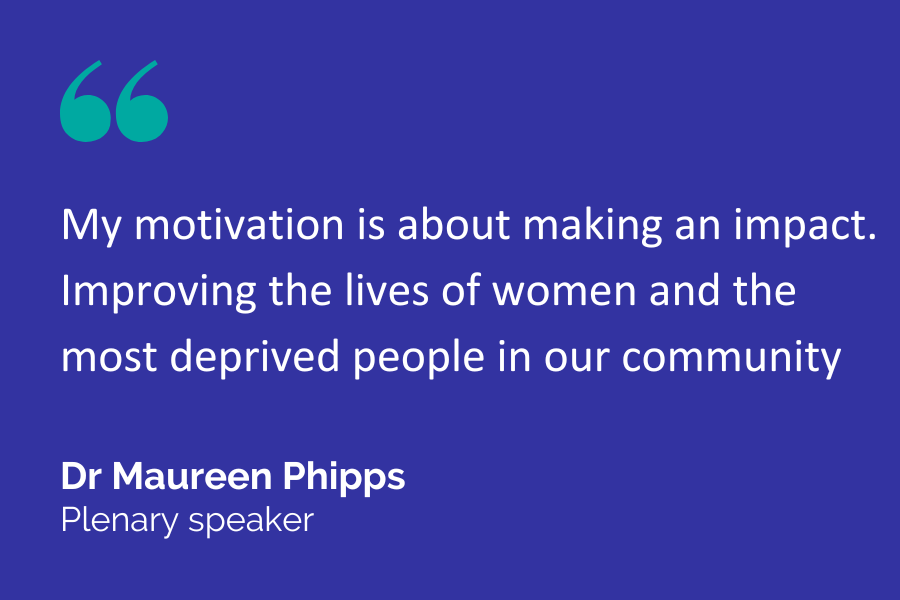
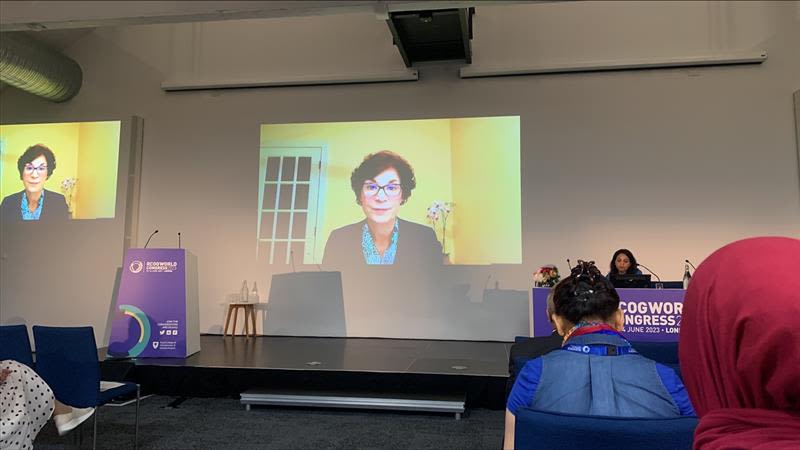
The first plenary discussion of day two is underway, with Dr Maureen Phipps' talk on achieving reproductive freedom.

You can read the RCOG's position statement on equitable access to maternity care for refugee, asylum seeking and undocumented migrant women here.
She explained how these women should not be moved between 36 weeks gestation and 6 weeks postpartum. Dispersal is highly detrimental to women's wellbeing, often leaving them feeling scared and unsupported in labour and post-natal period.
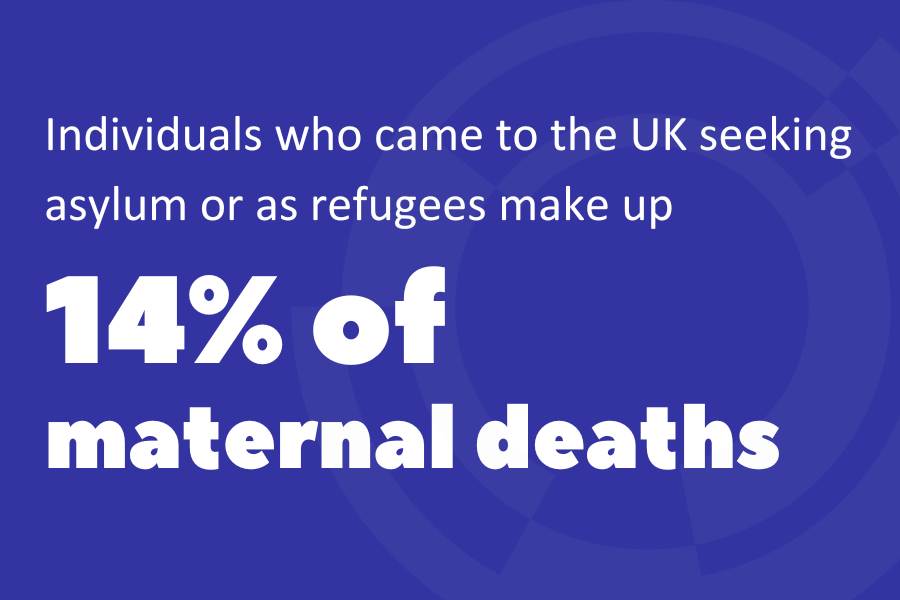
In one of the first sessions of day two, Dr Nia Jones gave an update on obstetric care of refugee women and asylum seekers in the UK.

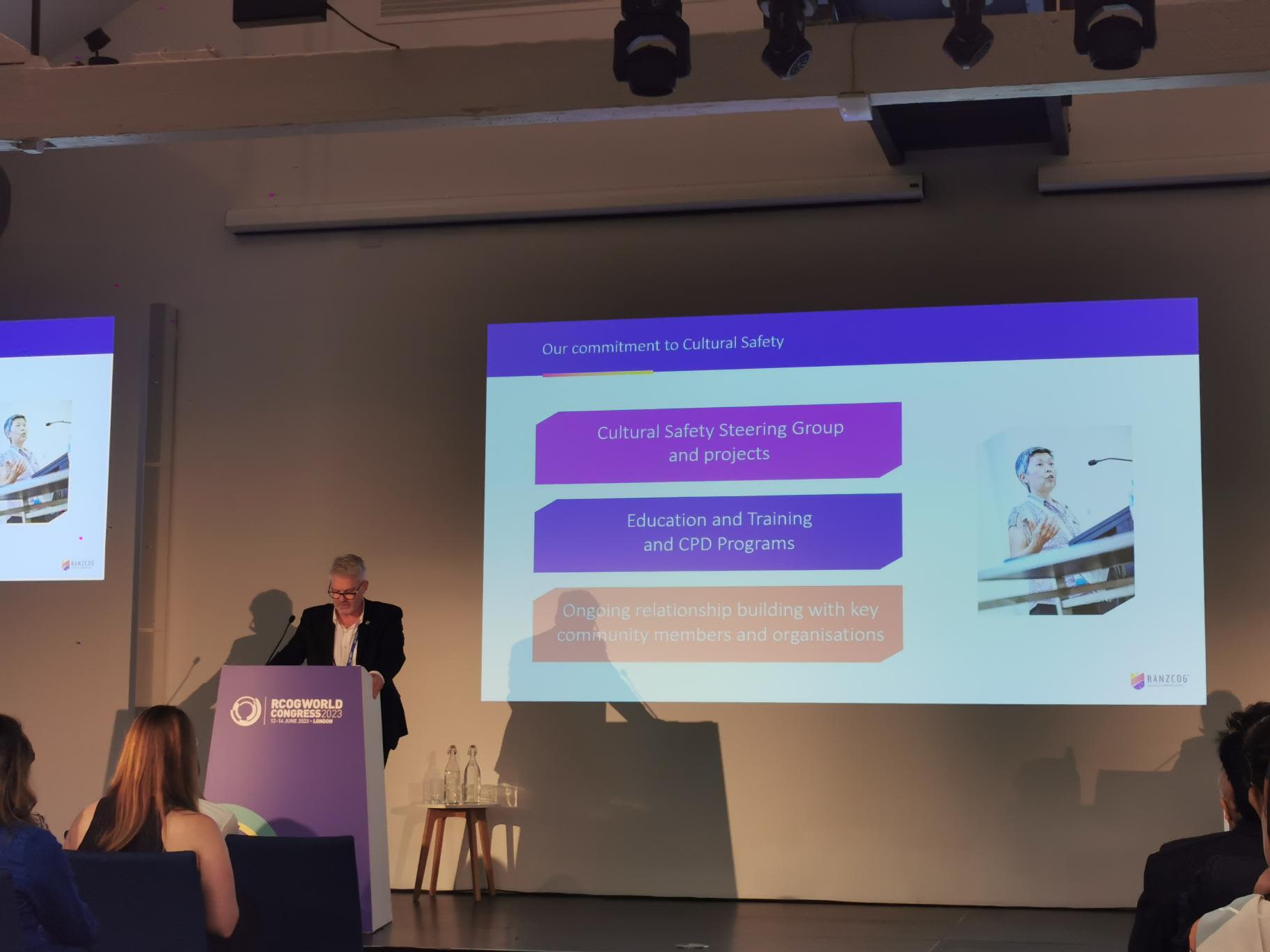
Dr Ben Bopp, President of RANZCOG, tied up the day's talks with a plenary discussion on cultural awareness and safety in obstetrics and gynaecology education.
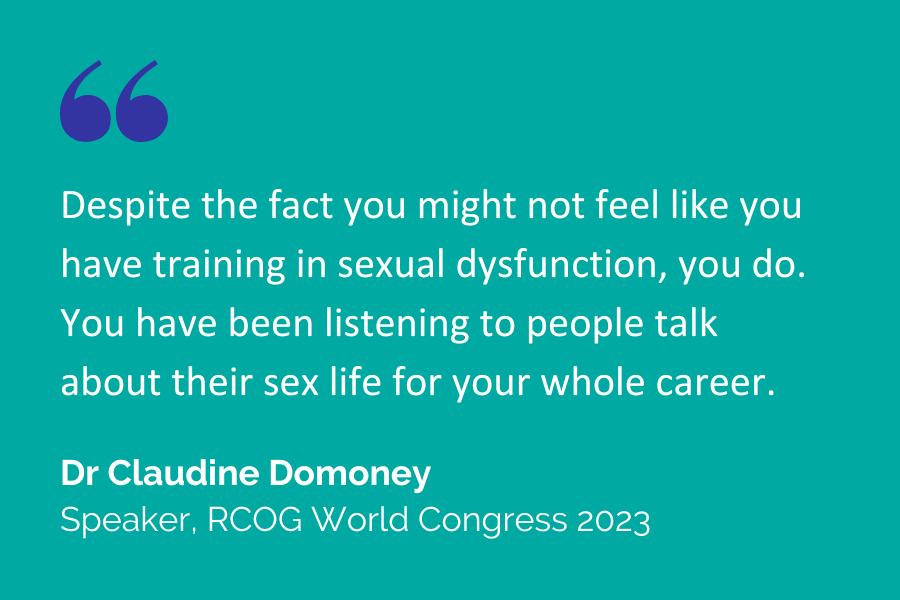
Although some health professionals may not feel like 'the expert' on sexual dysfunction, she reminded the audience that clinicians working in O&G will have spent a lot of time talking to patients about their sexual health.
In the urogynaecology and pelvic floor medicine session, Dr Claudine Domoney spoke about sexual dysfunction and vaginismus, and that sex relates to both the mind and body.
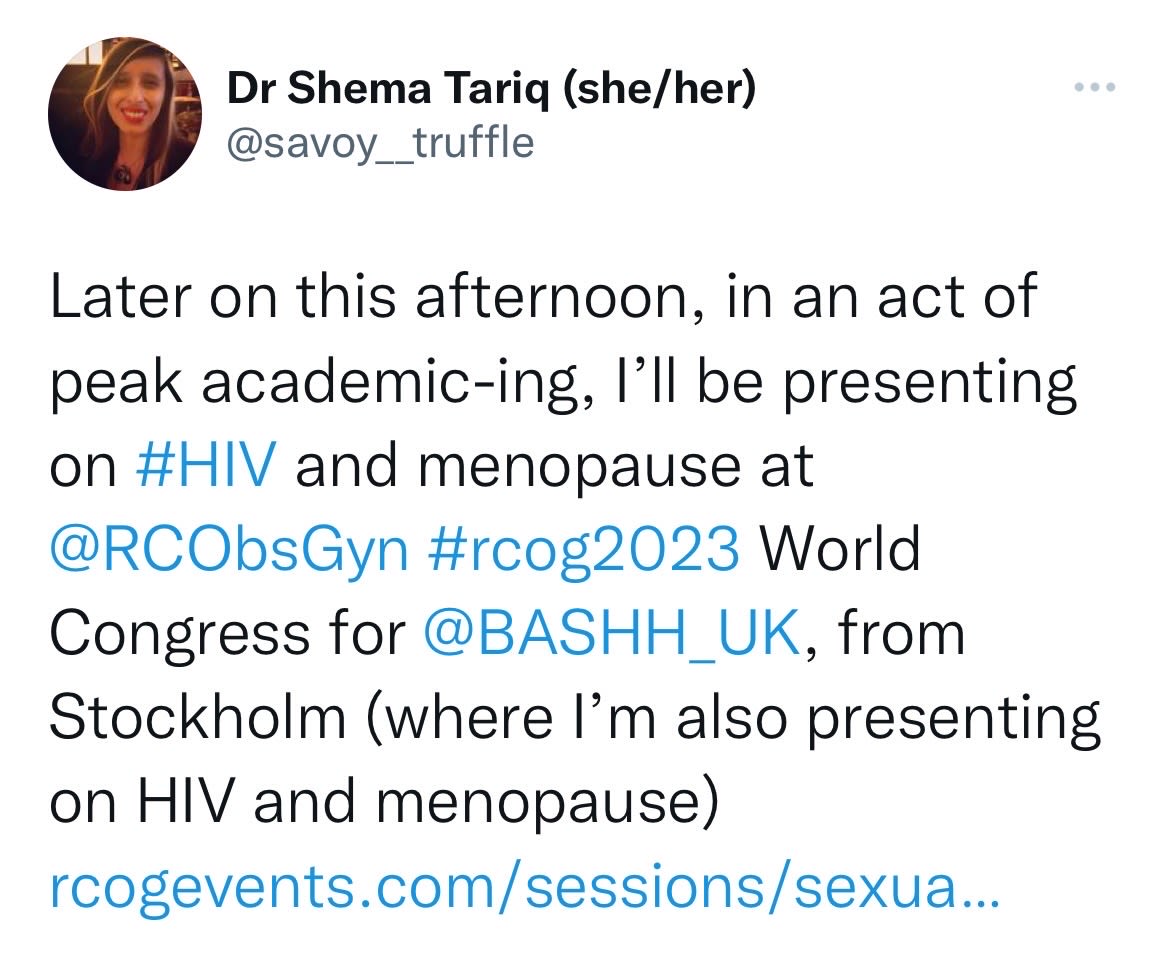
Later in the afternoon, Dr Shema Tariq shared her research on HIV and the menopause, and the confusion women may face when trying to distinguish between menopausal and HIV symptoms.
She explained that hormone replacement therapy is under-used in general, and that hall women with HIV who are going through the menopause under the age of 40 should be prescribed HRT (or COC) until at least the age of 50.
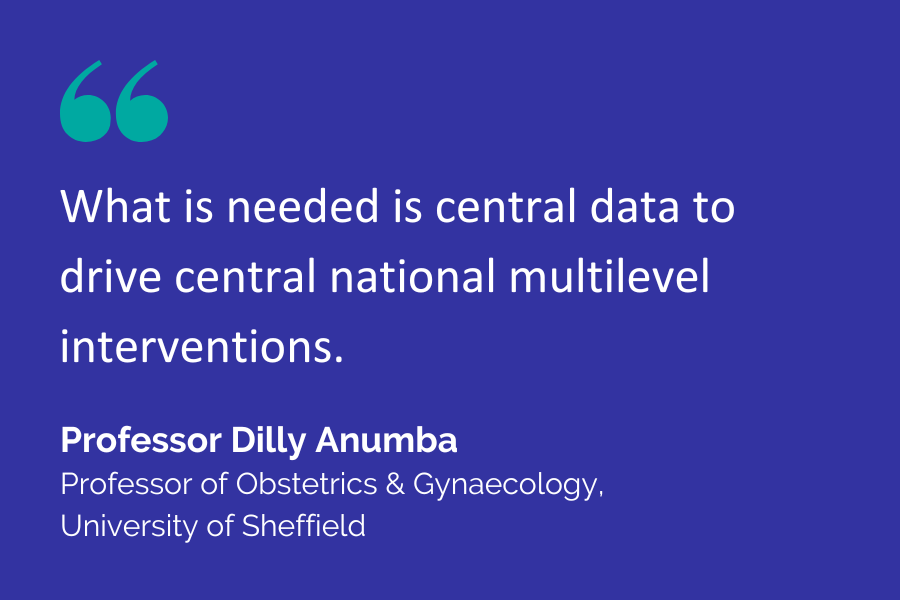
In the first plenary session of RCOG World Congress 2023, Professor Shakila Thangaratinam, Professor Stephen Rulisa and Professor Dilly Anumba discussed challenges and inequities in maternity care. Professor Anumba spoke about challenges from a UK perspective, and covered possible interventions to promote health equity among mothers and babies.
Yesterday, we heard speakers talk on a range of topics across multiple streams.
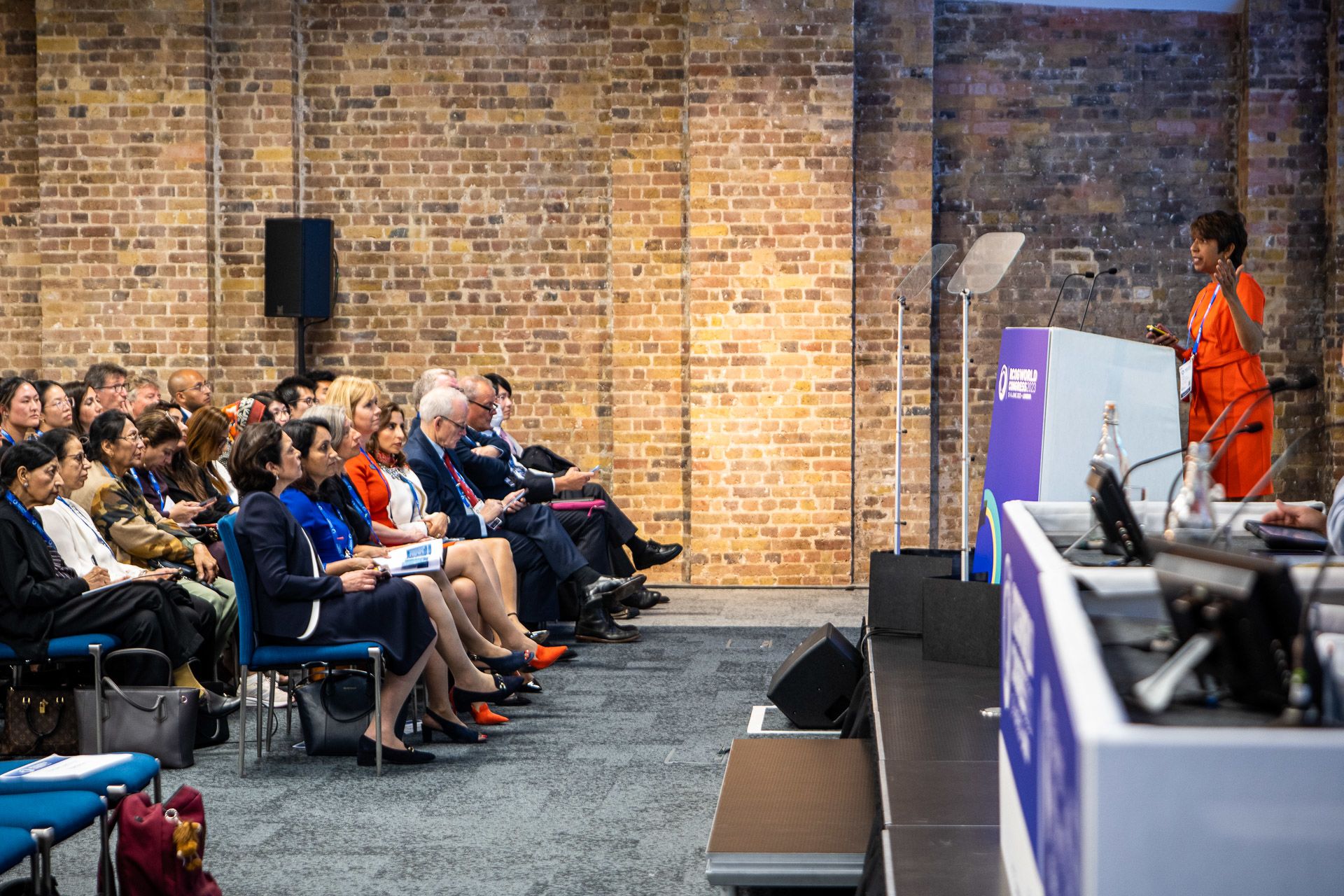
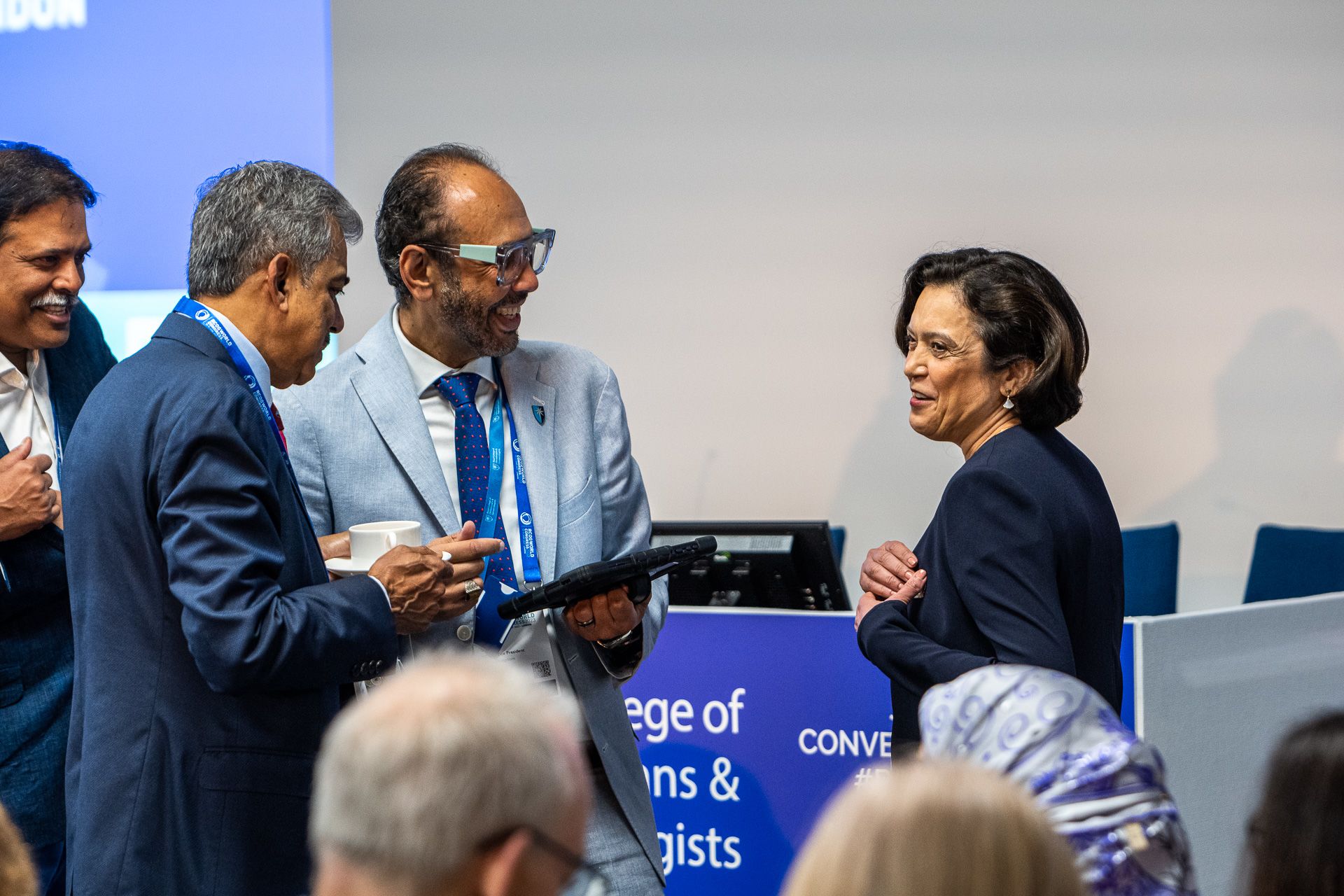
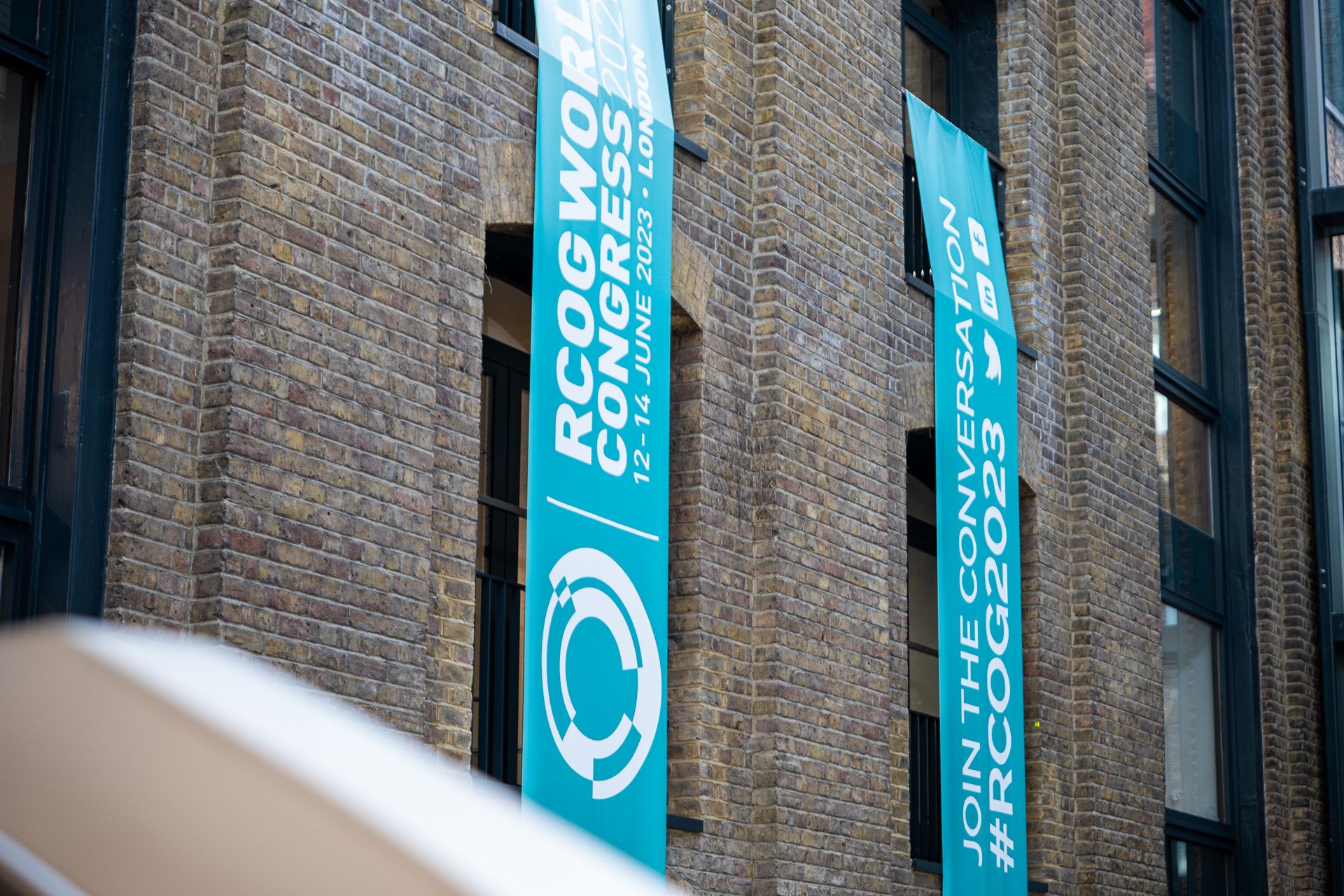
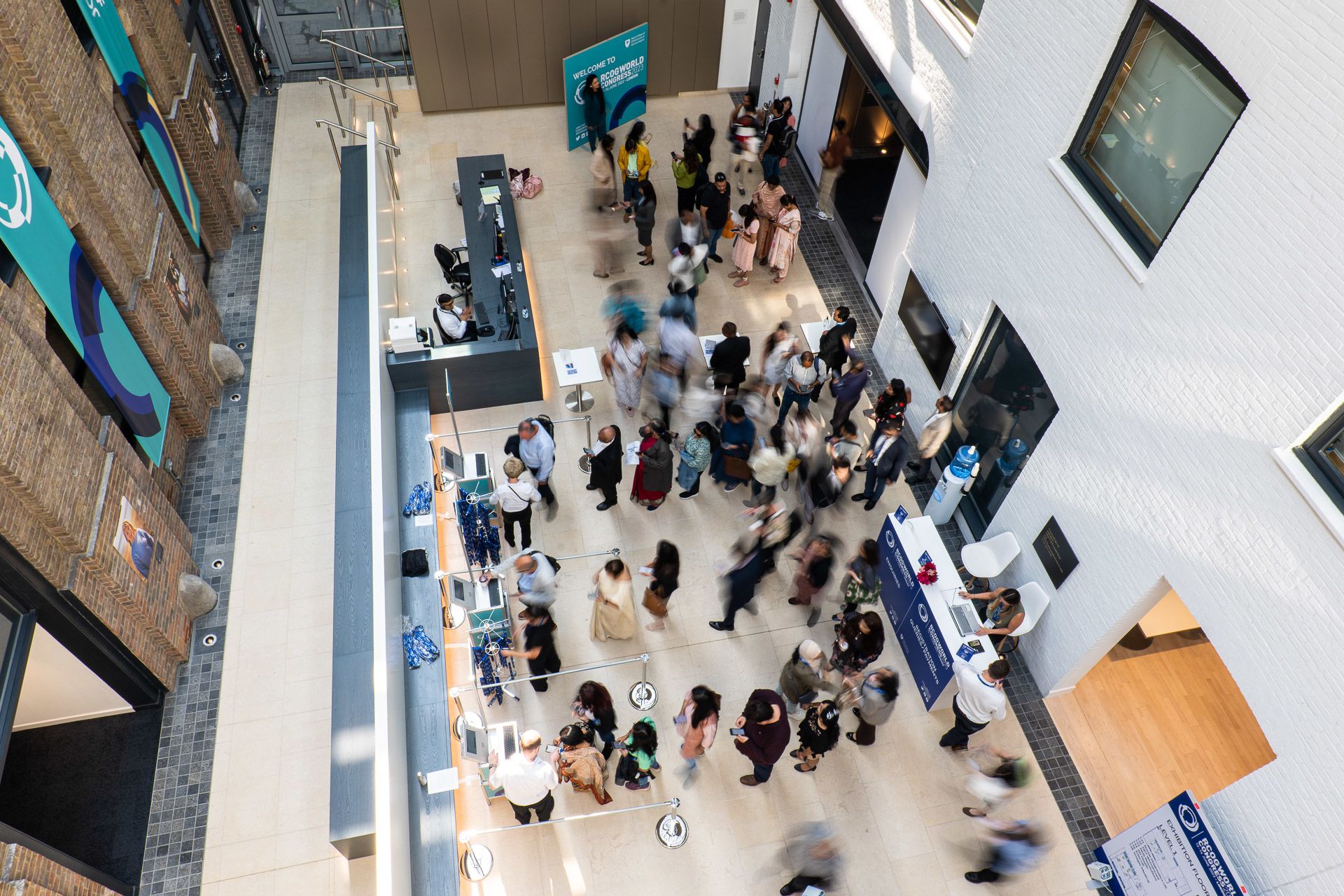




Welcome to day two of RCOG World Congress 2023!
Here on our live Congress blog, we will be keeping you up to date with ground-breaking talks, thought provoking debates and innovation in research.
We recommend having this open as a separate tab in your internet browser and refreshing the page often throughout the day to receive the latest updates.
Don't forget to share your highlights from Congress on social media using #RCOG2023
